Here's a thread to act as sort of a hub for the Canadian political scene, otherwise known as "Please God please just let it stop, we keep thinking it can't get worse but then these doped-up foreigners sit in a big wooden room and invent ways to make it worse than we ever thought imaginable"
Elections are coming up. Quick rundown:
The Green party is only sticking around the talk bad about the Orange party.
The Orange Party is no longer giving their votes to the Red Party.
The Red Party is once again more blue than the Blue Party.
The Blue Party has had more members switch over to the Purple Party.
The Purple Party keeps asking me for money.
I'll keep tabs on habbenings and try to explain them cohesively. Feel free to contribute. Please don't laugh at us because our PM made sex with goats legal merely because Allah wills it.
/mlpol/ - My Little Politics
104 replies | 76 files | 59 UUIDs | Page 3
4 replies and 1 files omitted.
>>379207
And you’re bringing this up in the Canadian politics thread because…?
And you’re bringing this up in the Canadian politics thread because…?
Canadian MSM has been lit up recently over the news that President Donald will force Canada to secure its own border, lest Canada's exports to the US will be tariffed and therefore less attractive to US buyers. The marijuana fag-suckers on the radio and CBC are trying to spin it that this will make everything in Canada more expensive for Canadians despite that not being how supply and demand works at all.
A significant amount of illegal boats enter through East coast Canadian ports to drop their shitskins off, who then head South across to the USA. It is Canada's (decided) responsibility to monitor and control who leaves Canada through this border and evidence suggests that they don't attend to any movement beyond the roadways - effectively turning a blind eye to all illegal crossing both in and out. The Republicans are well aware of just how many would-be Mexico hoppers will simply stow away on these Northbound boats, enough to consider the Canadian border nearly half of the entire hopper problem. Even "legally", Mexicans are able to get work Visas in Canada and then simply sneak South when they feel like it.
In better news, the oil pipelines are happening. For all his faults, Trudeau at least understands the value of them. From an economic and environmental standpoint, underground delivery of crude oil to the US is infinitely better than trucking and training it one barrel at a time. Remember that it was Biden who shut down oil pipelines from Alaska and the NWT. Not out of environmentalism or some other made up reason - but "just because" it was something Donald was enthusiastic about. Canada got screwed over because the pipes would also deliver oil within the country. Delivery is the biggest part of the gas bill and a lot of the comes from before the oil is processed.
Harper coordinated it with Obama
Obama ordered the work be done by Alaskans and other US workers
Trudeau smoothed it over with indigenous land czars
Trump announced his plans for construction
Biden uuuuuuuuuuuuhhhhhhhhhhhhhh duuurrrr oil bad, pipe bad, rocky road double chocolate
So at last, no matter who's sitting in Canada's plywood throne, there are good times for gas prices ahead.
A significant amount of illegal boats enter through East coast Canadian ports to drop their shitskins off, who then head South across to the USA. It is Canada's (decided) responsibility to monitor and control who leaves Canada through this border and evidence suggests that they don't attend to any movement beyond the roadways - effectively turning a blind eye to all illegal crossing both in and out. The Republicans are well aware of just how many would-be Mexico hoppers will simply stow away on these Northbound boats, enough to consider the Canadian border nearly half of the entire hopper problem. Even "legally", Mexicans are able to get work Visas in Canada and then simply sneak South when they feel like it.
In better news, the oil pipelines are happening. For all his faults, Trudeau at least understands the value of them. From an economic and environmental standpoint, underground delivery of crude oil to the US is infinitely better than trucking and training it one barrel at a time. Remember that it was Biden who shut down oil pipelines from Alaska and the NWT. Not out of environmentalism or some other made up reason - but "just because" it was something Donald was enthusiastic about. Canada got screwed over because the pipes would also deliver oil within the country. Delivery is the biggest part of the gas bill and a lot of the comes from before the oil is processed.
Harper coordinated it with Obama
Obama ordered the work be done by Alaskans and other US workers
Trudeau smoothed it over with indigenous land czars
Trump announced his plans for construction
Biden uuuuuuuuuuuuhhhhhhhhhhhhhh duuurrrr oil bad, pipe bad, rocky road double chocolate
So at last, no matter who's sitting in Canada's plywood throne, there are good times for gas prices ahead.
1733990831_1.webm (32.9 MB, Resolution:854x480 Length:00:09:16, 20241210 Town Fined For Not Celebrating Pride Month - uKdNTs-PqN0.webm) [play once] [loop]

-Video is of Count Dankula weighing in on a Town Fined For Not Celebrating Pride Month
...I'm having a hard time tracking this bullshit, to be honest. It's all so tiresome. Clownworld is tiresome.
The way I heard about it in a much less meme-worthy video more had the tone of "look at this guy in a position somewhere usually known to be the most enthusiastic people pushing the woke package of ideology opposing it". He's getting some kind of fine for it, but he's refusing to pay it last I heard. There's an energy in the air, I think.
>Town of Emo, Canada:
>"WE AREN'T GAY, WE'RE EMO!"
That quote up there was from a YouTube comment. The meme magic... it's a bit much. I can hardly believe it, myself. These absurdities are overwhelming.
...I'm having a hard time tracking this bullshit, to be honest. It's all so tiresome. Clownworld is tiresome.
The way I heard about it in a much less meme-worthy video more had the tone of "look at this guy in a position somewhere usually known to be the most enthusiastic people pushing the woke package of ideology opposing it". He's getting some kind of fine for it, but he's refusing to pay it last I heard. There's an energy in the air, I think.
>Town of Emo, Canada:
>"WE AREN'T GAY, WE'RE EMO!"
That quote up there was from a YouTube comment. The meme magic... it's a bit much. I can hardly believe it, myself. These absurdities are overwhelming.
In today's news, nearly all semi-automatic rifles have been banned
https://www.gazette.gc.ca/rp-pr/p2/2024/2024-12-06-x3/html/sor-dors248-eng.html
The footnotes spell out loud and clear that these guns were banned "because some shootings happened with them once, not even in Canada either"
>Canada has experienced mass shootings in rural and urban areas such as in Nova Scotia, Quebec City, Montréal, and Toronto. Whether at home or abroad, the deadliest mass shootings are commonly perpetrated with assault-style firearms.
But people may buy MORE guns as a reaction!
>There is also a risk that affected firearms owners may elect to replace their firearms with models unaffected by the ban, causing a market displacement...
...And so the list will grow!
>..This risk may be mitigated by adding additional makes and models to the list of prohibited firearms in future.
Owners of these firearms - of which most are completely unregistered - have a 10 months to either export them, deactivate them (no moving parts), hand them in, or sell them back to the government (The government has yet to roll out their buyback program from their previous bans)
>While an individual may dispose of a firearm by deactivating it, legally exporting it or delivering it to a police officer, compensation will not be available until the ASFCP is implemented
Every gun store and registered range is already projected to go out of business.
https://www.gazette.gc.ca/rp-pr/p2/2024/2024-12-06-x3/html/sor-dors248-eng.html
The footnotes spell out loud and clear that these guns were banned "because some shootings happened with them once, not even in Canada either"
>Canada has experienced mass shootings in rural and urban areas such as in Nova Scotia, Quebec City, Montréal, and Toronto. Whether at home or abroad, the deadliest mass shootings are commonly perpetrated with assault-style firearms.
But people may buy MORE guns as a reaction!
>There is also a risk that affected firearms owners may elect to replace their firearms with models unaffected by the ban, causing a market displacement...
...And so the list will grow!
>..This risk may be mitigated by adding additional makes and models to the list of prohibited firearms in future.
Owners of these firearms - of which most are completely unregistered - have a 10 months to either export them, deactivate them (no moving parts), hand them in, or sell them back to the government (The government has yet to roll out their buyback program from their previous bans)
>While an individual may dispose of a firearm by deactivating it, legally exporting it or delivering it to a police officer, compensation will not be available until the ASFCP is implemented
Every gun store and registered range is already projected to go out of business.
>>379377
>Americans scream tyranny is wonderfu
No American says this.
>Americans are unable to explain why Cubans try to escape
Because Cuba is just as shit as any other failed Communist experiment that lost access to the Big Red Wallet.
>Americans scream tyranny is wonderfu
No American says this.
>Americans are unable to explain why Cubans try to escape
Because Cuba is just as shit as any other failed Communist experiment that lost access to the Big Red Wallet.
1734310324_1.webm (8.1 MB, Resolution:854x480 Length:00:02:39, 20240924 Danielle Smith: Firearms Owners Will Be Protected under Bill of Rights - No4fSZ2m9H8.webm) [play once] [loop]

Danielle Smith: Firearms Owners Will Be Protected under Bill of Rights
Canada's National Firearms Association
[YouTube] Danielle Smith: Firearms Owners Will Be Protected under Bill of Rights![]()
Well... it looks like it's not all bad.
Danielle Smith here was voted in to be the Premiere of the Province of Alberta with the help of a grassroots organization called Take Back Alberta. There's also another separate organization called Take Back Ontario that's up and organizing people for more political action.
Alberta has a lot of oil sands in it, so it's one of the wealthiest provinces.
Canada's National Firearms Association
[YouTube] Danielle Smith: Firearms Owners Will Be Protected under Bill of Rights
Well... it looks like it's not all bad.
Danielle Smith here was voted in to be the Premiere of the Province of Alberta with the help of a grassroots organization called Take Back Alberta. There's also another separate organization called Take Back Ontario that's up and organizing people for more political action.
Alberta has a lot of oil sands in it, so it's one of the wealthiest provinces.
Okay, so our Finance Minister just resigned a little while ago. Then the next person in line also resigned.
Our budget is super-fucked. Worse than usual, I mean.
Trudeau might end up resigning his position. Things are still kind of in the air on this. I sure fuckin' hope he does.
Our budget is super-fucked. Worse than usual, I mean.
Trudeau might end up resigning his position. Things are still kind of in the air on this. I sure fuckin' hope he does.
Something's happening live. He might be on his way to resigning. I haven't found a good livestream yet.
In other news: WEF man in charge of Orange Super Far Left party who is refusing to join in on the vote of no-confidence to force a new election so he can get his pension seems to be in a bit of trouble.
WATCH NOW: Jagmeet Singh BREAKS DOWN In TEARS He Faces JAIL After 'Older White Men’ RACIST Comment
Canadian Tribune
https://www.youtube.com/watch?v=7PXQCOqAloo
^ I haven't watched that one yet, it's in my pile of tabs. This is Orange Party man.
I'm almost able to imagine that there might be some short-term hope.
Let's get a CyTube room going, if anyone's interested. I've got the livestream on, but it's from some "Times Of India" YouTube channel. I'll work on trying to find an alternate livestream.
I'm not entirely sure why this is the only livestream I can readily find, but I'll watch it for the time being.
https://cytu.be/r/StreamChat
https://cytu.be/r/StreamChat
https://cytu.be/r/StreamChat
In other news: WEF man in charge of Orange Super Far Left party who is refusing to join in on the vote of no-confidence to force a new election so he can get his pension seems to be in a bit of trouble.
WATCH NOW: Jagmeet Singh BREAKS DOWN In TEARS He Faces JAIL After 'Older White Men’ RACIST Comment
Canadian Tribune
https://www.youtube.com/watch?v=7PXQCOqAloo
^ I haven't watched that one yet, it's in my pile of tabs. This is Orange Party man.
I'm almost able to imagine that there might be some short-term hope.
Let's get a CyTube room going, if anyone's interested. I've got the livestream on, but it's from some "Times Of India" YouTube channel. I'll work on trying to find an alternate livestream.
I'm not entirely sure why this is the only livestream I can readily find, but I'll watch it for the time being.
https://cytu.be/r/StreamChat
https://cytu.be/r/StreamChat
https://cytu.be/r/StreamChat
The Liberals keep talking about an "Online Harms Act" and Bill C63 to "protect children".
The bold faced self-important using of emotional trigger words to gain censorship power over the masses and threaten life imprisonment makes for very tense watching.
The Leftists sure do love saying that we need to spend more government money to save people money. I'm not sure government workers have a great understanding of how money works, and the role the government has in screwing up that process.
Ooh, we're getting some documents tabled.
The bold faced self-important using of emotional trigger words to gain censorship power over the masses and threaten life imprisonment makes for very tense watching.
The Leftists sure do love saying that we need to spend more government money to save people money. I'm not sure government workers have a great understanding of how money works, and the role the government has in screwing up that process.
Ooh, we're getting some documents tabled.
...The woman finance minister was actually "trying" to keep the deficit to 40b. But she was told to make the budget with the 60b deficit. So she resigned less than an hour before when it was supposed to be submitted.
Multiple ministers in Trudeau's cabinet have resigned.
I dunno what the fuck is going on, but there might be some potential in this whirlwind.
The livestream had bots in it talking about specific complaints and economic statements about things like an increase in the average price of a new car with specific numbers. The video seemed legit as far as I can tell, but there are a few questionable elements around it.
Have a good night, everyone, and get your rest!
Multiple ministers in Trudeau's cabinet have resigned.
I dunno what the fuck is going on, but there might be some potential in this whirlwind.
The livestream had bots in it talking about specific complaints and economic statements about things like an increase in the average price of a new car with specific numbers. The video seemed legit as far as I can tell, but there are a few questionable elements around it.
Have a good night, everyone, and get your rest!
I gotta say, I'm actually not sure why my country is being flooded by so many indians (dot).
As best I can figure, it was a mix of mass importing people in general to serve as new debt batteries to keep the economy barely chugging along for a little while longer, combined with the universities wanting to mass import them because international students pay much more than regular students. There's the Orange Party man who's some variety of indian, but I have a blind spot of not paying that much attention to parties I definitely know I don't want to support.
I'm not sure whether they have to front the whole student tuition amount at once with cash, or whether it's a loan, with the expectation that they'll work at least somewhat part-time (maybe even under the table), while living in hyper-dense conditions much like their home country to reduce effective rent costs.
Again, I get the idea of debt batteries for the economy, but I thought the plan was to flood us with moslems to just trigger a new caliphate / ottoman empire as soon as they reached the correct amount of population to just take over through overwhelming demographics as they continually extract tribute from us through being the legal "common nobility" class that cannot be criticized and also getting many government benefits.
The Indian population so far seems to be an overwhelming economic displacement event for most people in basic unskilled populations and even the tech industry, as the recent Elon event reminds people. See Pic 4 of this post >>379695 → The rate of phone scams and very pushy service providers has increased. But I'm not hearing a ton about rapes or knife attacks. For all I know that kind of story might be hidden from local news. The Sikhs are supposed to carry a knife in their turbans for religious reasons, if I recall correctly, but they don't seem to have a huge issue with random violent attacks on people.
-
We used to have a great news system. Especially for keeping tabs on geopolitical events. It was even noted in the Snowden files when he first leaked them. I don't think we had as bad of a drop-off in quality as what happened to the BBC in Britain, but I think we lost the spark there.
Maybe the plan with the indians is another layer of displacement. Then, after the founding population is dealt with with those covid camps we built but didn't use, unlike Australia, that used them, the ruling powers will pit the indians against the moslems so that they still have a public conflict to distract the people from how badly they're getting screwed. And both of these populations are not of the cultural lineage that is linked to things like the Magna Carta, so they'll likely comply easily.
Or maybe I'm wrong, and the golems will turn against their masters. Who knows.
-
I hope we can have an election soon. It would re-shuffle the parties' seats.
We elect Parties, not people. If The Turd was abducted by space aliens tomorrow, the Liberal party would just rotate someone else in to the position. The election would, if the polls are to be believed, result in a strong majority for the conservatives. That would give the conservative party leader a chance to make some changes.
Parties can throw their support behind another party and form a minority government. That means that if Party A has 40% of the seats, Party B has 35%, and Party C has 25%, then Party B and Party C can decide to co-operate to get their way, and they'll have more authority to throw around. This majority described in the poll of the Pic would be big enough to prevent this, as the members sitting in the seats can vote independently of their party for policies suggested by other parties. Many of the Liberals are abandoning Trudeau and openly supporting the Conservatives as the consequences of the fiscal and cultural insanity starts to become even harder to deny.
The general cycle of politics is that the Liberals make sweeping social and governmental changes with massive spending. This screws the economy up, so the Conservatives get elected to try to fix the mess. Then, when things have recovered, not completely, but enough so that the people aren't overwhelmingly dissatisfied, they elect the Liberals again, or at least have some sort of more leftist government.
-
Pierre Poilievre isn't a firebrand kind of orator, but he speaks in grounded terms that clearly describe the situation and it's urgency. I don't fully trust him, but if he works hard on the things he's saying, then we'll have a very productive four years with a lot of progress towards recovery.
As best I can figure, it was a mix of mass importing people in general to serve as new debt batteries to keep the economy barely chugging along for a little while longer, combined with the universities wanting to mass import them because international students pay much more than regular students. There's the Orange Party man who's some variety of indian, but I have a blind spot of not paying that much attention to parties I definitely know I don't want to support.
I'm not sure whether they have to front the whole student tuition amount at once with cash, or whether it's a loan, with the expectation that they'll work at least somewhat part-time (maybe even under the table), while living in hyper-dense conditions much like their home country to reduce effective rent costs.
Again, I get the idea of debt batteries for the economy, but I thought the plan was to flood us with moslems to just trigger a new caliphate / ottoman empire as soon as they reached the correct amount of population to just take over through overwhelming demographics as they continually extract tribute from us through being the legal "common nobility" class that cannot be criticized and also getting many government benefits.
The Indian population so far seems to be an overwhelming economic displacement event for most people in basic unskilled populations and even the tech industry, as the recent Elon event reminds people. See Pic 4 of this post >>379695 → The rate of phone scams and very pushy service providers has increased. But I'm not hearing a ton about rapes or knife attacks. For all I know that kind of story might be hidden from local news. The Sikhs are supposed to carry a knife in their turbans for religious reasons, if I recall correctly, but they don't seem to have a huge issue with random violent attacks on people.
-
We used to have a great news system. Especially for keeping tabs on geopolitical events. It was even noted in the Snowden files when he first leaked them. I don't think we had as bad of a drop-off in quality as what happened to the BBC in Britain, but I think we lost the spark there.
Maybe the plan with the indians is another layer of displacement. Then, after the founding population is dealt with with those covid camps we built but didn't use, unlike Australia, that used them, the ruling powers will pit the indians against the moslems so that they still have a public conflict to distract the people from how badly they're getting screwed. And both of these populations are not of the cultural lineage that is linked to things like the Magna Carta, so they'll likely comply easily.
Or maybe I'm wrong, and the golems will turn against their masters. Who knows.
-
I hope we can have an election soon. It would re-shuffle the parties' seats.
We elect Parties, not people. If The Turd was abducted by space aliens tomorrow, the Liberal party would just rotate someone else in to the position. The election would, if the polls are to be believed, result in a strong majority for the conservatives. That would give the conservative party leader a chance to make some changes.
Parties can throw their support behind another party and form a minority government. That means that if Party A has 40% of the seats, Party B has 35%, and Party C has 25%, then Party B and Party C can decide to co-operate to get their way, and they'll have more authority to throw around. This majority described in the poll of the Pic would be big enough to prevent this, as the members sitting in the seats can vote independently of their party for policies suggested by other parties. Many of the Liberals are abandoning Trudeau and openly supporting the Conservatives as the consequences of the fiscal and cultural insanity starts to become even harder to deny.
The general cycle of politics is that the Liberals make sweeping social and governmental changes with massive spending. This screws the economy up, so the Conservatives get elected to try to fix the mess. Then, when things have recovered, not completely, but enough so that the people aren't overwhelmingly dissatisfied, they elect the Liberals again, or at least have some sort of more leftist government.
-
Pierre Poilievre isn't a firebrand kind of orator, but he speaks in grounded terms that clearly describe the situation and it's urgency. I don't fully trust him, but if he works hard on the things he's saying, then we'll have a very productive four years with a lot of progress towards recovery.
1736183148.png (962.5 KB, 1000x1100, 4ba7372d00dc974b1602a76800c6705c.png)

>>380043
Is it just me, or does it take alot longer to say something in French Canadian than it does in English?
Is it just me, or does it take alot longer to say something in French Canadian than it does in English?
I still think Justin Trudeau will still find a way to stay in power beyond March. He doesn't want to lose power. His ego won't allow it. Be wary.
>>380044
It does. In French class, we compared the English version of things to the French version. Even the French version of songs have to crowbar in a bunch of extra syllables.
It does. In French class, we compared the English version of things to the French version. Even the French version of songs have to crowbar in a bunch of extra syllables.
1737431635_1.png (861.6 KB, 1280x720, 20250120 How living in Canada Became Impossible - 2HiKVsXjdXo.png)
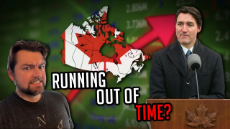
How Living In Canada Became Impossible
History of Everything Podcast
[YouTube] How living in Canada Became Impossible![]()
This guy does some history videos, gameplay of Hearts of Iron IV (including Equestria at War), and other content besides.
This seems to be good so far.
27:20 Oh, I forgot about the wrestling match.
This might finally be explained clearly enough for the uncaring to understand things.
History of Everything Podcast
[YouTube] How living in Canada Became Impossible
This guy does some history videos, gameplay of Hearts of Iron IV (including Equestria at War), and other content besides.
This seems to be good so far.
27:20 Oh, I forgot about the wrestling match.
This might finally be explained clearly enough for the uncaring to understand things.
1738211008_1.webm (17.0 MB, Resolution:1920x1080 Length:00:02:10, 20250123 22 Minutes - Pierre Poilievre meets his hero... John A. Macdonald! | This Hour Has 22 Minutes - WS_jwZDzO2c.webm) [play once] [loop]
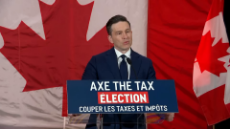
Whelp, there's some new bullshit layers of Canadian News that are both major and disturbing, but here's one of the more fun things I found instead.
This is a clip from a political skit comedy show in Canada. It's about a quip from Pierre from the blue party saying he wants to make Canada more like it was envisioned by John A Macdonald.
Stereotypes of old-timey racisms ensue.
Pierre Poilievre meets his hero... John A. Macdonald! | This Hour Has 22 Minutes
22 Minutes
https://www.youtube.com/ watch?v=WS_jwZDzO2c
11 minutes long
This is a clip from a political skit comedy show in Canada. It's about a quip from Pierre from the blue party saying he wants to make Canada more like it was envisioned by John A Macdonald.
Stereotypes of old-timey racisms ensue.
Pierre Poilievre meets his hero... John A. Macdonald! | This Hour Has 22 Minutes
22 Minutes
https://www.youtube.com/ watch?v=WS_jwZDzO2c
11 minutes long
The tariff's shitshow is getting more interesting by the day.
According to /pol/, counter tariffs are coming.
According to /pol/, counter tariffs are coming.
https://x.com/JustinTrudeau/status/1886529228193022429
Justin Trudeau
@JustinTrudeau
I just had a good call with President Trump. Canada is implementing our $1.3 billion border plan — reinforcing the border with new choppers, technology and personnel, enhanced coordination with our American partners, and increased resources to stop the flow of fentanyl. Nearly 10,000 frontline personnel are and will be working on protecting the border.
In addition, Canada is making new commitments to appoint a Fentanyl Czar, we will list cartels as terrorists, ensure 24/7 eyes on the border, launch a Canada- U.S. Joint Strike Force to combat organized crime, fentanyl and money laundering. I have also signed a new intelligence directive on organized crime and fentanyl and we will be backing it with $200 million.
Proposed tariffs will be paused for at least 30 days while we work together.
4:36 PM · Feb 3, 2025
·
1.9M
Views
>There's actually some sort of border plan that involves (new!) choppers, people and Can-US co-ordination.
>Appointing someone specifically to deal with the Fentanyl
>List cartels as terrorists
>Also combating money laundering
>Tariffs are paused for 30 days.
This actually seems moderately non-retarded. I absolutely suspect that there's some sort of country-destroying evil plan that The Turd is serving by doing this that I'm not seeing yet, but... At least it's not a day of nothing but terrible news.
I'm worrying that Pierre (blue party man) isn't going to be enough. He and all the other entrenched members of the political class seem to be using this tariff issue to try to strengthen their power base and give them a reason to remain in charge, now that they have a "crisis" that they can visibly show up to fight. All the various other crises are just tools for them to personally enrich themselves and their masters while destroying my civilization, so I'm immediately suspicious of anything they think is a good idea. Pierre was talking a good game while avoiding the lion's share of major issues like mass immigration and crime, but at least he's talking about them unlike the other parties.
I really, really hope that Jagmeet and Justin suffers some sort of significant penalty for the harms they have inflicted on my country.
Justin Trudeau
@JustinTrudeau
I just had a good call with President Trump. Canada is implementing our $1.3 billion border plan — reinforcing the border with new choppers, technology and personnel, enhanced coordination with our American partners, and increased resources to stop the flow of fentanyl. Nearly 10,000 frontline personnel are and will be working on protecting the border.
In addition, Canada is making new commitments to appoint a Fentanyl Czar, we will list cartels as terrorists, ensure 24/7 eyes on the border, launch a Canada- U.S. Joint Strike Force to combat organized crime, fentanyl and money laundering. I have also signed a new intelligence directive on organized crime and fentanyl and we will be backing it with $200 million.
Proposed tariffs will be paused for at least 30 days while we work together.
4:36 PM · Feb 3, 2025
·
1.9M
Views
>There's actually some sort of border plan that involves (new!) choppers, people and Can-US co-ordination.
>Appointing someone specifically to deal with the Fentanyl
>List cartels as terrorists
>Also combating money laundering
>Tariffs are paused for 30 days.
This actually seems moderately non-retarded. I absolutely suspect that there's some sort of country-destroying evil plan that The Turd is serving by doing this that I'm not seeing yet, but... At least it's not a day of nothing but terrible news.
I'm worrying that Pierre (blue party man) isn't going to be enough. He and all the other entrenched members of the political class seem to be using this tariff issue to try to strengthen their power base and give them a reason to remain in charge, now that they have a "crisis" that they can visibly show up to fight. All the various other crises are just tools for them to personally enrich themselves and their masters while destroying my civilization, so I'm immediately suspicious of anything they think is a good idea. Pierre was talking a good game while avoiding the lion's share of major issues like mass immigration and crime, but at least he's talking about them unlike the other parties.
I really, really hope that Jagmeet and Justin suffers some sort of significant penalty for the harms they have inflicted on my country.
Bernier's rundown on the situation, from the mailing list
It’s important to understand that the 25% tariffs announced by President Trump today are NOT imposed on Canada — they will be paid by American consumers and businesses who buy goods imported from Canada. Tariffs are a tax, and Americans who will have to pay more or go without our products will be the first to suffer.
Of course, Canadian exporters of these goods will as a consequence lose clients, contracts and sales, and will be forced to cut down on production and lay off workers. Or they will lower their prices to keep market shares and will see their profits diminish.
Because 75% of our exports go south of the border, our economy will for sure be very negatively impacted by this.
The stupidest thing our government can do however to deal with this crisis is to impose the same kind of tariffs “dollar for dollar” against US imports.
The US economy is ten times bigger than ours, much less reliant on trade than ours, and much less dependent on our market than we are on theirs.
Not only would retaliatory tariffs have much less impact on American exporters, they would immediately impoverish Canadian consumers forced to pay more for imported goods, as well as destabilize Canadian businesses that need inputs from the US in their production processes. It would more than double the harm of the US tariffs to our economy.
Trade wars are bad for everyone, but they are much worse for a small country with fewer options. We simply cannot win a trade war with the US. It’s very unlikely that Trump will back down. All we will do is provoke a massive economic crisis in Canada, until we are forced to capitulate.
Another self-destructive thing to do would be to set up giant “pandemic-level” bailout plans to support everyone affected by this trade war. This will simply bankrupt our governments even more than they already are and make us even weaker.
So what should we do?
1. Double down on efforts to control our border, crack down on fentanyl dealers, deport all illegals, and impose a complete moratorium on immigration, to answer Trump’s immediate concerns about Canada.
2. Tell the US administration that we are ready to renegotiate North American free trade and put dairy supply management and other contentious issues on the table.
3. Wait and see to what extent Trump is willing to keep tariffs in place despite the harm it does to the US economy. Despite his pretenses that Americans don’t need our stuff, the reality is that on the contrary they have few other options for crucial resources like oil, lumber, uranium and other minerals, etc. He will stop acting like a bully when he sees that he can get more results by sitting down and negotiating.
4. To reduce our dependence on the US market, immediately implement an ambitious plan to tear down interprovincial trade barriers and help our impacted exporting industries find alternative markets in other countries.
5. Immediately implement a series of bold reforms to make our economy more productive, including: reduce corporate and personal taxes, abolish the capital gains tax, abolish all corporate subsidies, get rid of excessive regulation, remove impediments to the exploitation and export of natural resources, drastically cut government spending, mandate the Bank of Canada to stop printing money and start accumulating a gold reserve to prepare for the global monetary reset (which is likely part of Trump’s plan).
In short, instead of adopting a suicidal strategy to confront Trump, we must do what we should have done a long time ago to strengthen our economy and our bargaining position. The transition will be rough, but not as much as complete bankruptcy and disintegration.
It’s important to understand that the 25% tariffs announced by President Trump today are NOT imposed on Canada — they will be paid by American consumers and businesses who buy goods imported from Canada. Tariffs are a tax, and Americans who will have to pay more or go without our products will be the first to suffer.
Of course, Canadian exporters of these goods will as a consequence lose clients, contracts and sales, and will be forced to cut down on production and lay off workers. Or they will lower their prices to keep market shares and will see their profits diminish.
Because 75% of our exports go south of the border, our economy will for sure be very negatively impacted by this.
The stupidest thing our government can do however to deal with this crisis is to impose the same kind of tariffs “dollar for dollar” against US imports.
The US economy is ten times bigger than ours, much less reliant on trade than ours, and much less dependent on our market than we are on theirs.
Not only would retaliatory tariffs have much less impact on American exporters, they would immediately impoverish Canadian consumers forced to pay more for imported goods, as well as destabilize Canadian businesses that need inputs from the US in their production processes. It would more than double the harm of the US tariffs to our economy.
Trade wars are bad for everyone, but they are much worse for a small country with fewer options. We simply cannot win a trade war with the US. It’s very unlikely that Trump will back down. All we will do is provoke a massive economic crisis in Canada, until we are forced to capitulate.
Another self-destructive thing to do would be to set up giant “pandemic-level” bailout plans to support everyone affected by this trade war. This will simply bankrupt our governments even more than they already are and make us even weaker.
So what should we do?
1. Double down on efforts to control our border, crack down on fentanyl dealers, deport all illegals, and impose a complete moratorium on immigration, to answer Trump’s immediate concerns about Canada.
2. Tell the US administration that we are ready to renegotiate North American free trade and put dairy supply management and other contentious issues on the table.
3. Wait and see to what extent Trump is willing to keep tariffs in place despite the harm it does to the US economy. Despite his pretenses that Americans don’t need our stuff, the reality is that on the contrary they have few other options for crucial resources like oil, lumber, uranium and other minerals, etc. He will stop acting like a bully when he sees that he can get more results by sitting down and negotiating.
4. To reduce our dependence on the US market, immediately implement an ambitious plan to tear down interprovincial trade barriers and help our impacted exporting industries find alternative markets in other countries.
5. Immediately implement a series of bold reforms to make our economy more productive, including: reduce corporate and personal taxes, abolish the capital gains tax, abolish all corporate subsidies, get rid of excessive regulation, remove impediments to the exploitation and export of natural resources, drastically cut government spending, mandate the Bank of Canada to stop printing money and start accumulating a gold reserve to prepare for the global monetary reset (which is likely part of Trump’s plan).
In short, instead of adopting a suicidal strategy to confront Trump, we must do what we should have done a long time ago to strengthen our economy and our bargaining position. The transition will be rough, but not as much as complete bankruptcy and disintegration.
>>381042
>Pierre was talking a good game while avoiding the lion's share of major issues like mass immigration and crime
His words on the crime seems worryingly incomplete, but includes enough expression of the depth of the problem to warrant a national mandate to fix what is clearly an untenable situation. A lot of the economic discussion is good, too, but something about it feels a bit shallow.
I'd have to learn more about his positions in detail to make a real critique of him.
>>381048
>Purple Man Speaks
Good to hear from him. Regarding the point about intra-country trade, that's a surprisingly big problem. One of the bigger nerfs to Canada's overall prosperity, I'd bet. Both Maxine Bernier and Pierre Poilievre talked about this as being a thing to change. This wasn't on any foreign politician's list of priorities, but is a major economic problem that both of these people have probably been trying to change for a long time.
>Pierre was talking a good game while avoiding the lion's share of major issues like mass immigration and crime
His words on the crime seems worryingly incomplete, but includes enough expression of the depth of the problem to warrant a national mandate to fix what is clearly an untenable situation. A lot of the economic discussion is good, too, but something about it feels a bit shallow.
I'd have to learn more about his positions in detail to make a real critique of him.
>>381048
>Purple Man Speaks
Good to hear from him. Regarding the point about intra-country trade, that's a surprisingly big problem. One of the bigger nerfs to Canada's overall prosperity, I'd bet. Both Maxine Bernier and Pierre Poilievre talked about this as being a thing to change. This wasn't on any foreign politician's list of priorities, but is a major economic problem that both of these people have probably been trying to change for a long time.
[YouTube] Trudeau’s Decision Faces COURT Challenge![]()
Trudeau’s Decision Faces COURT Challenge
>A major legal battle is unfolding in Canada, challenging the legality of Justin Trudeau’s prorogation of Parliament. With a federal court hearing set for February 13-14 in Ottawa, this case could have significant implications for the Liberal government’s future—and potentially lead to an early election.
>If the court rules that Trudeau’s prorogation was unlawful, Parliament could be recalled, setting the stage for a non-confidence vote that could bring the current government down. Jagmeet Singh has publicly reiterated his position on non-confidence, and if he follows through, Canadians could be heading to the polls sooner than expected.
>On the firearms front, despite years of Liberal efforts, gun owners have not lost their legally owned firearms. The Conservatives have committed to reversing Trudeau’s gun bans, and with recent legal challenges against the use of Orders in Council (OICs) to prohibit firearms, there’s growing optimism within the pro-gun community.
>With the CCFR’s 10th anniversary approaching, this year could mark a turning point for Canadian gun owners and advocates of individual freedoms. Stay informed, stay engaged, and let’s see where this fight leads.
Some of the tricks Trudeau has been using to slow down the ability of the government to respond to the will of Canadian citizens are being questioned, and the questions are making their way up the chain through the system. February 13-14 will hopefully have some good news.
Or maybe I'm just glued to the political circus and need to unplug. I'm not sure. This feels important, at least.
Trudeau’s Decision Faces COURT Challenge
>A major legal battle is unfolding in Canada, challenging the legality of Justin Trudeau’s prorogation of Parliament. With a federal court hearing set for February 13-14 in Ottawa, this case could have significant implications for the Liberal government’s future—and potentially lead to an early election.
>If the court rules that Trudeau’s prorogation was unlawful, Parliament could be recalled, setting the stage for a non-confidence vote that could bring the current government down. Jagmeet Singh has publicly reiterated his position on non-confidence, and if he follows through, Canadians could be heading to the polls sooner than expected.
>On the firearms front, despite years of Liberal efforts, gun owners have not lost their legally owned firearms. The Conservatives have committed to reversing Trudeau’s gun bans, and with recent legal challenges against the use of Orders in Council (OICs) to prohibit firearms, there’s growing optimism within the pro-gun community.
>With the CCFR’s 10th anniversary approaching, this year could mark a turning point for Canadian gun owners and advocates of individual freedoms. Stay informed, stay engaged, and let’s see where this fight leads.
Some of the tricks Trudeau has been using to slow down the ability of the government to respond to the will of Canadian citizens are being questioned, and the questions are making their way up the chain through the system. February 13-14 will hopefully have some good news.
Or maybe I'm just glued to the political circus and need to unplug. I'm not sure. This feels important, at least.
1738905127.jpg (96.1 KB, 733x900, 487952678456278456874156784157845.jpg)

I'm horrified by the claim of annexing Canada.
Does any of these low IQ bottom feeders know that inside that territory half of the population are pajeets, chinks and niggers, and the other half are mostly White communists and jews?
Jeeeeez!
Does any of these low IQ bottom feeders know that inside that territory half of the population are pajeets, chinks and niggers, and the other half are mostly White communists and jews?
Jeeeeez!
>>381163
The first and most important thing that must be done to secure a future for Western Civilization is restoring a sustainable degree of ethnic homogeneity. It may be the case that a friendly changeover of governments might be what's needed to rearrange the demography.
Don't underestimate the chilling effect of media control, speech laws, and having a period of the year with legitimately cold weather, on the appearance of not fighting back in public.
For a long while, things seemed to be going pretty good, and a lot of people just checked out of politics almost entirely. Add the control over the media and people's natural slothful tendencies in information digestion, and you have a population who is not accustomed to participating actively in it's own politics.
Regular life is already overwhelming without the (seemingly) optional extra burden of larger scale political involvement beyond just picking a party of general principals and voting for them.
Get some way to sort the Communists from Decent people. Bonus points for figuring out how to filter dark triad types willing to lie.
The first and most important thing that must be done to secure a future for Western Civilization is restoring a sustainable degree of ethnic homogeneity. It may be the case that a friendly changeover of governments might be what's needed to rearrange the demography.
Don't underestimate the chilling effect of media control, speech laws, and having a period of the year with legitimately cold weather, on the appearance of not fighting back in public.
For a long while, things seemed to be going pretty good, and a lot of people just checked out of politics almost entirely. Add the control over the media and people's natural slothful tendencies in information digestion, and you have a population who is not accustomed to participating actively in it's own politics.
Regular life is already overwhelming without the (seemingly) optional extra burden of larger scale political involvement beyond just picking a party of general principals and voting for them.
Get some way to sort the Communists from Decent people. Bonus points for figuring out how to filter dark triad types willing to lie.
Something is rotten in leafland.
>>381453
[YouTube] UPDATE & Correction to Global Affairs Foreign Aid Story![]()
UPDATE & Correction to Global Affairs Foreign Aid Story
The Elev8 Podcast
5 minutes
It seems to be up again, but access is degraded. They claim that there were technical issues, and it was a problem with updates.
The foreign assistance data page seems to still be accessible.
https://www.international.gc.ca/transparency-transparence/international-assistance-report-stat-rapport-aide-internationale/index.aspx?lang=eng
That said, like every government in the Western World, most of the government and regulatory bodies is/are cancer, and it's hard (or at least time consuming) to distinguish the healthy meat from the tumor. Hopefully, the strong push towards sanity that is closer to the surface than ever will spill over into a new pan-european golden age of cultures, once the issues are resolved.
This is not a problem of a government that is good that grew a little too big. Very deep controlling levels of infection into the deepest layers of governance happened a long time ago, and the Big Club has gotten so fat and lazy that they've accelerated towards openly working towards the absolute un-making of my nation.
I think it is very likely that throwing out a few corrupt government officials is going to be a drop in the bucket of what needs to be done to secure a future for my people, but with luck, the scale of what needs to be changed will be understood by people once the new golden age of the US really kicks in.
[YouTube] UPDATE & Correction to Global Affairs Foreign Aid Story
UPDATE & Correction to Global Affairs Foreign Aid Story
The Elev8 Podcast
5 minutes
It seems to be up again, but access is degraded. They claim that there were technical issues, and it was a problem with updates.
The foreign assistance data page seems to still be accessible.
https://www.international.gc.ca/transparency-transparence/international-assistance-report-stat-rapport-aide-internationale/index.aspx?lang=eng
That said, like every government in the Western World, most of the government and regulatory bodies is/are cancer, and it's hard (or at least time consuming) to distinguish the healthy meat from the tumor. Hopefully, the strong push towards sanity that is closer to the surface than ever will spill over into a new pan-european golden age of cultures, once the issues are resolved.
This is not a problem of a government that is good that grew a little too big. Very deep controlling levels of infection into the deepest layers of governance happened a long time ago, and the Big Club has gotten so fat and lazy that they've accelerated towards openly working towards the absolute un-making of my nation.
I think it is very likely that throwing out a few corrupt government officials is going to be a drop in the bucket of what needs to be done to secure a future for my people, but with luck, the scale of what needs to be changed will be understood by people once the new golden age of the US really kicks in.
Former Trump Strategist DROPS BOMBSHELL that Canada’s Sovereignty Is Already SLIPPING AWAY!
The Elev8 Podcast
[YouTube] Former Trump Strategist DROPS BOMBSHELL that Canada’s Sovereignty Is Already SLIPPING AWAY!![]()
17 minutes
Feb 17, 2025
>Brian Lilley from the Sun sat down with former White House Chief Strategist Steve Bannon to discuss the very real threats that face Canada that Trump's 51st State rhetoric is intended to point warning to.
Lilley Unleashed: Trump, Canada and the 51st state. Bannon weighs in.
Brian Lilley
https://x.com/brianlilley/status/1891530732163465524
>23 minutes
Feb 17, 2025
>Brian Lilley talks with Steve Bannon, former advisor to President Donald Trump. Bannon explains the importance of Canada to Trump, and how it ties in with the Panama Canal and Greenland.
The headline reader makes a lot of connections, and the interview is of a name that the mainstream probably knows about, and comes from a mainstream news organization. Maybe this can help things sink in for people. There are more layers of BS happening in my country that after some point I just concluded that it was broken beyond repair, and it was impossible to explain this depth to people who couldn't see it.
Frankly, it might be more than I can readily keep track of. Big government, deep corruption, can't explain things without explaining everything, then explaining the influence networks, then tracing the movement of influence and tax dollars, then this, then that, when it still comes down to a simple summary of the situation that is the current worst word / most offensive idea imaginable to a person to say.
...Do you still have to be non-white to move to the US?
The Elev8 Podcast
[YouTube] Former Trump Strategist DROPS BOMBSHELL that Canada’s Sovereignty Is Already SLIPPING AWAY!
17 minutes
Feb 17, 2025
>Brian Lilley from the Sun sat down with former White House Chief Strategist Steve Bannon to discuss the very real threats that face Canada that Trump's 51st State rhetoric is intended to point warning to.
Lilley Unleashed: Trump, Canada and the 51st state. Bannon weighs in.
Brian Lilley
https://x.com/brianlilley/status/1891530732163465524
>23 minutes
Feb 17, 2025
>Brian Lilley talks with Steve Bannon, former advisor to President Donald Trump. Bannon explains the importance of Canada to Trump, and how it ties in with the Panama Canal and Greenland.
The headline reader makes a lot of connections, and the interview is of a name that the mainstream probably knows about, and comes from a mainstream news organization. Maybe this can help things sink in for people. There are more layers of BS happening in my country that after some point I just concluded that it was broken beyond repair, and it was impossible to explain this depth to people who couldn't see it.
Frankly, it might be more than I can readily keep track of. Big government, deep corruption, can't explain things without explaining everything, then explaining the influence networks, then tracing the movement of influence and tax dollars, then this, then that, when it still comes down to a simple summary of the situation that is the current worst word / most offensive idea imaginable to a person to say.
...Do you still have to be non-white to move to the US?
1739921310_1.jpg (49.2 KB, 640x480, 20250124 BREAKING NEWS: Canada Revenue Agency TAKEN TO COURT By Canadian Taxpayers Federation! - Northern Perspective - -x84WrX4elw.jpg)
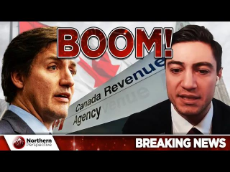
1739921310_2.webm (33.1 MB, Resolution:854x480 Length:00:16:38, 20250124 BREAKING NEWS: Canada Revenue Agency TAKEN TO COURT By Canadian Taxpayers Federation! - Northern Perspective - -x84WrX4elw.webm) [play once] [loop]
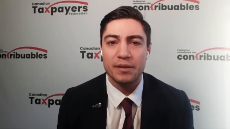
Taxpayers launching court fight against undemocratic capital gains tax hike
>Author: Devin Drover 2025/01/24 — Read time: 2 minutes
https://www.taxpayer.com/newsroom/taxpayers-launching-court-fight-against-undemocratic-capital-gains-tax-hike
>OTTAWA, ON: The Canadian Taxpayers Federation is filing a legal challenge today to stop the Canada Revenue Agency from enforcing a capital gains tax increase that has not been approved by Parliament.
>“The government has no legal right to enforce this tax hike because it has not received legislative approval by Parliament,” said Devin Drover, CTF General Counsel. “This tax grab violates the fundamental principle of no taxation without representation. That’s why we are asking the courts to put an immediate stop to this bureaucratic overreach.”
>The CTF is representing Debbie Vorsteveld, a resident of Mapleton, Ontario. Last year, she and her husband, Willem, sold a property that included a secondary home. They had rented the secondary home to their adult children, but had to sell it when their kids were ready to move on. The CRA says the Vorstevelds must pay higher capital gains taxes under the proposed capital gains increase or face financial penalties.
>The CTF is seeking urgent relief from the Federal Court to block the CRA’s enforcement of the proposed tax increase. In its application, the CTF argues the tax increase violates the rule of law and is unconstitutional.
>The government passed a ways and means motion for the tax increase last year but failed to introduce, debate, pass, or proclaim the necessary legislation into law.
>Parliament is now prorogued until March 24, 2025, and opposition parties have all pledged to bring down the Liberal government. As a result, there is no realistic chance the legislation will pass before the next election. Despite this, the CRA is pushing ahead with enforcement of the tax as if it is already law.
>A new report from the C.D. Howe Institute shows the capital gains tax increase will result in 414,000 fewer jobs and shrink Canada’s GDP by nearly $90 billion.
>“The undemocratic capital gains tax hike will blow a huge hole in Canada’s economy and punishes people saving for their retirement, entrepreneurs, doctors and Canadian workers,” said Franco Terrazzano, CTF Federal Director. “It’s Parliament’s responsibility to approve tax increases before they’re imposed, not unelected government bureaucrats.
>“The CRA must immediately halt its plans to enforce this unapproved tax hike, which threatens to undemocratically take billions from Canadians and cripple our economy.”
-
BREAKING NEWS: Canada Revenue Agency TAKEN TO COURT By Canadian Taxpayers Federation!
Northern Perspective
https://www.youtube.com/watch?v=-x84WrX4elw
17 minutes
There's something up with YouTube getting in the way of easy downloads, so who knows if I'll get the video
Capital Gains tax. When you gain in capital, you will be taxed on it. You know how, with rocketing home prices, only some people who got on the seat before the music stopped had a somewhat less expensive position to be in? Well, this is probably the tool that would be used to confiscate all property from the hands of the peasants who managed to maintain homes and food so far.
Over half of the people affected by this will be earning less than ~$117k, according to a comment I heard on the video portion.
TL;DR
>The government increased Capital Gains tax in a way they shouldn't have. It has been proposed, but didn't actually go through the full process of being passed into law, since The Turd (trudeau) decided to prorogue (shut down) the government to keep his WEF grift going. But they're enforcing it as though it has already passed.
Taxation is theft, but this is a theft that even the legal system has to acknowledge. The WEF take-over-everything plan is having the boat rocked a million ways from a million directions. This is one of them.
>Author: Devin Drover 2025/01/24 — Read time: 2 minutes
https://www.taxpayer.com/newsroom/taxpayers-launching-court-fight-against-undemocratic-capital-gains-tax-hike
>OTTAWA, ON: The Canadian Taxpayers Federation is filing a legal challenge today to stop the Canada Revenue Agency from enforcing a capital gains tax increase that has not been approved by Parliament.
>“The government has no legal right to enforce this tax hike because it has not received legislative approval by Parliament,” said Devin Drover, CTF General Counsel. “This tax grab violates the fundamental principle of no taxation without representation. That’s why we are asking the courts to put an immediate stop to this bureaucratic overreach.”
>The CTF is representing Debbie Vorsteveld, a resident of Mapleton, Ontario. Last year, she and her husband, Willem, sold a property that included a secondary home. They had rented the secondary home to their adult children, but had to sell it when their kids were ready to move on. The CRA says the Vorstevelds must pay higher capital gains taxes under the proposed capital gains increase or face financial penalties.
>The CTF is seeking urgent relief from the Federal Court to block the CRA’s enforcement of the proposed tax increase. In its application, the CTF argues the tax increase violates the rule of law and is unconstitutional.
>The government passed a ways and means motion for the tax increase last year but failed to introduce, debate, pass, or proclaim the necessary legislation into law.
>Parliament is now prorogued until March 24, 2025, and opposition parties have all pledged to bring down the Liberal government. As a result, there is no realistic chance the legislation will pass before the next election. Despite this, the CRA is pushing ahead with enforcement of the tax as if it is already law.
>A new report from the C.D. Howe Institute shows the capital gains tax increase will result in 414,000 fewer jobs and shrink Canada’s GDP by nearly $90 billion.
>“The undemocratic capital gains tax hike will blow a huge hole in Canada’s economy and punishes people saving for their retirement, entrepreneurs, doctors and Canadian workers,” said Franco Terrazzano, CTF Federal Director. “It’s Parliament’s responsibility to approve tax increases before they’re imposed, not unelected government bureaucrats.
>“The CRA must immediately halt its plans to enforce this unapproved tax hike, which threatens to undemocratically take billions from Canadians and cripple our economy.”
-
BREAKING NEWS: Canada Revenue Agency TAKEN TO COURT By Canadian Taxpayers Federation!
Northern Perspective
https://www.youtube.com/watch?v=-x84WrX4elw
17 minutes
There's something up with YouTube getting in the way of easy downloads, so who knows if I'll get the video
Capital Gains tax. When you gain in capital, you will be taxed on it. You know how, with rocketing home prices, only some people who got on the seat before the music stopped had a somewhat less expensive position to be in? Well, this is probably the tool that would be used to confiscate all property from the hands of the peasants who managed to maintain homes and food so far.
Over half of the people affected by this will be earning less than ~$117k, according to a comment I heard on the video portion.
TL;DR
>The government increased Capital Gains tax in a way they shouldn't have. It has been proposed, but didn't actually go through the full process of being passed into law, since The Turd (trudeau) decided to prorogue (shut down) the government to keep his WEF grift going. But they're enforcing it as though it has already passed.
Taxation is theft, but this is a theft that even the legal system has to acknowledge. The WEF take-over-everything plan is having the boat rocked a million ways from a million directions. This is one of them.
The Fulcrum - CANADIAN MILITARY CRISIS! FOREIGN Legion? TRUMP's Actions & CARNEY's Installation
Frank Vaughan
[YouTube] How to make cement from wood ash![]()
https://frankvaughan.ca/the-fulcrum-canadian-military-crisis-foreign-legion-trumps-actions-carneys-installation/
31 minutes
Update: Shit's still hitting the fan. Good presenter speaks.
I actually suggest giving this guy a watch, he's definitely more than a notch or two above the normal Headline Reader style of presenter. He thinks and speaks in a better way.
>The military's fucked.
>There's some sort of initiative to start a kind of foreign legion to give even more people citizenship
>The Liberals opened up registration for free
>Lots of people registered
>>They wanted to change the suicidal direction of the Liberal party and vote in a candidate that wasn't openly a traitor to the country
>>Ruby Dhalla, a Sikh indian was voted in. The Sikhs have taken control of big chunks of politics.
>She's being pushed out.
>Things are so bad that an Indian woman not getting control of the Liberal party still represents a worsening of where we were already going.
This guy walks through how and why the Canadian Federal Election will be delayed. The tariffs, the causes of which are never mentioned in mainstream news, are going to cause economic pain in addition to the sabotage from the traitors and the tumors. This pain will be a justification to call a state of emergency. Then the thumbscrews will be further tightened in this torturous Communist takeover.
Many generations of various public brainwashing has gone in to setting up this worldwide takeover. Now, at the eleventh hour, increasingly effective pushback is happening, and even some of the normies who work to try to ignore reality are being forced to notice.
I dislike most governments in the west, but change is afoot.
>Fortress North America when?
Frank Vaughan
[YouTube] How to make cement from wood ash
https://frankvaughan.ca/the-fulcrum-canadian-military-crisis-foreign-legion-trumps-actions-carneys-installation/
31 minutes
Update: Shit's still hitting the fan. Good presenter speaks.
I actually suggest giving this guy a watch, he's definitely more than a notch or two above the normal Headline Reader style of presenter. He thinks and speaks in a better way.
>The military's fucked.
>There's some sort of initiative to start a kind of foreign legion to give even more people citizenship
>The Liberals opened up registration for free
>Lots of people registered
>>They wanted to change the suicidal direction of the Liberal party and vote in a candidate that wasn't openly a traitor to the country
>>Ruby Dhalla, a Sikh indian was voted in. The Sikhs have taken control of big chunks of politics.
>She's being pushed out.
>Things are so bad that an Indian woman not getting control of the Liberal party still represents a worsening of where we were already going.
This guy walks through how and why the Canadian Federal Election will be delayed. The tariffs, the causes of which are never mentioned in mainstream news, are going to cause economic pain in addition to the sabotage from the traitors and the tumors. This pain will be a justification to call a state of emergency. Then the thumbscrews will be further tightened in this torturous Communist takeover.
Many generations of various public brainwashing has gone in to setting up this worldwide takeover. Now, at the eleventh hour, increasingly effective pushback is happening, and even some of the normies who work to try to ignore reality are being forced to notice.
I dislike most governments in the west, but change is afoot.
>Fortress North America when?
The Fulcrum - Influencer IGNORANCE Regarding CRIME In Canada And TARIFFS
Frank Vaughan
[YouTube] The Fulcrum - Influencer IGNORANCE Regarding CRIME In Canada And TARIFFS![]()
23 minutes
This seems like a good overview / introduction style of video with the various examples and concepts he covers. These are not talking points that get articulated all that well or all that often, normally.
He makes especially well articulated points in the obviousness of the scale of the problem for anyone paying attention, which makes the fact that this isn't spoken about in open / mainstream media stand out a whole lot. IRL with the policy platforms and talking points of the politicians in their various appearances, and relative to this corner of the commons of the internet, at least.
Frank Vaughan
[YouTube] The Fulcrum - Influencer IGNORANCE Regarding CRIME In Canada And TARIFFS
23 minutes
This seems like a good overview / introduction style of video with the various examples and concepts he covers. These are not talking points that get articulated all that well or all that often, normally.
He makes especially well articulated points in the obviousness of the scale of the problem for anyone paying attention, which makes the fact that this isn't spoken about in open / mainstream media stand out a whole lot. IRL with the policy platforms and talking points of the politicians in their various appearances, and relative to this corner of the commons of the internet, at least.
>>381801
>He makes especially well articulated points
Yeah, but he's not redpilled at all and echos the zog's talking points to distract the normies.
Governments don't give a flying fuck about drug addicts and to know what is the noise about, you should follow the money.
1- It is the end of the road for the capitalist system in the west. Governments' borrowing from the Rothschild banks is unsustainable and debts can't be paid.
2- America and confederates are broke
3- The plot to dismember Russia and loot her natural resources failed.
4- The plot to take control of the Chinese factories is unlikely to succeed.
5- The plot of become the XXI century master of the universe by means of bullets 3 and 4 is a distant pipe dream.
6- What is left to America is to eat/exploit/squeeze her own allies as an act of survival and naked gangsterism.
>He makes especially well articulated points
Yeah, but he's not redpilled at all and echos the zog's talking points to distract the normies.
Governments don't give a flying fuck about drug addicts and to know what is the noise about, you should follow the money.
1- It is the end of the road for the capitalist system in the west. Governments' borrowing from the Rothschild banks is unsustainable and debts can't be paid.
2- America and confederates are broke
3- The plot to dismember Russia and loot her natural resources failed.
4- The plot to take control of the Chinese factories is unlikely to succeed.
5- The plot of become the XXI century master of the universe by means of bullets 3 and 4 is a distant pipe dream.
6- What is left to America is to eat/exploit/squeeze her own allies as an act of survival and naked gangsterism.
>>381806
>3
The point wasn't to harvest those eastern resources, the point is to deprive western counties of their own resources for the impending take over/collapse.
As said before in many threads over the years, hostile agents are exporting resources and money to anywhere else, to try crippling free people. The most dangerous race(s). The most dangerous act of communicating anything to another far away.
The whole western civilization is supposed to crash, burn and be ripe for the taking.
There's been snags to that.
But here's some of the things that have been done.
>Drugs
Weakens the population.
>Debts can't be paid
That's the point. The expected goal is to crash the debt after stealing everything possible from the host nations.
Canada is on the China front, you know who's easier to conquer?
Retards with enough guns to cover every blade of grass in every direction.
Snoggers that are infiltrated and there's many potential foward operating bases being drained even more than the retards.
Obviously the easier entry point is Canada. Shut down any or all public services, water, electricity, roads, ruin military equipment (or take it) ect in winter alot of deaths happen.
Then divide and conquer.
If the forces south don't try taking the pie, which was the point the US president made as a subtle Chinese face slapping to their not so secret plan to not fuck around with him.
So there's now a timer counting down till there is another weak-wristed faggot running things in the USA and Canada.
If either manage to not go tits up then it's a matter of more waiting and poisoning.
<What if debt is dropped?
Behold CORN!
>3
The point wasn't to harvest those eastern resources, the point is to deprive western counties of their own resources for the impending take over/collapse.
As said before in many threads over the years, hostile agents are exporting resources and money to anywhere else, to try crippling free people. The most dangerous race(s). The most dangerous act of communicating anything to another far away.
The whole western civilization is supposed to crash, burn and be ripe for the taking.
There's been snags to that.
But here's some of the things that have been done.
>Drugs
Weakens the population.
>Debts can't be paid
That's the point. The expected goal is to crash the debt after stealing everything possible from the host nations.
Canada is on the China front, you know who's easier to conquer?
Retards with enough guns to cover every blade of grass in every direction.
Snoggers that are infiltrated and there's many potential foward operating bases being drained even more than the retards.
Obviously the easier entry point is Canada. Shut down any or all public services, water, electricity, roads, ruin military equipment (or take it) ect in winter alot of deaths happen.
Then divide and conquer.
If the forces south don't try taking the pie, which was the point the US president made as a subtle Chinese face slapping to their not so secret plan to not fuck around with him.
So there's now a timer counting down till there is another weak-wristed faggot running things in the USA and Canada.
If either manage to not go tits up then it's a matter of more waiting and poisoning.
<What if debt is dropped?
Behold CORN!
>>381810
Very sorry, you seem to have been trying to articulate a point, but you also seem to have neglected to actually make that point. Would you mind rephrasing on coherent terms?
Very sorry, you seem to have been trying to articulate a point, but you also seem to have neglected to actually make that point. Would you mind rephrasing on coherent terms?
Well, the 25% tariffs on the Leaves are already in effect.
Mr Trudeau just promised symmetrical tariffs to the States, then Mr Trump escalated with the ominous answer shown in the pic., meaning that if Canada retaliates then the USA will increase automatically the tariffs to 50%.
This is a lose-lose situation for Canada where whoever can will run for the lifeboats and sail for America as the safest place to economically survive.
RIP Canada.
[YouTube] Trump responds after Trudeau announces retaliatory tariffs![]()
Mr Trudeau just promised symmetrical tariffs to the States, then Mr Trump escalated with the ominous answer shown in the pic., meaning that if Canada retaliates then the USA will increase automatically the tariffs to 50%.
This is a lose-lose situation for Canada where whoever can will run for the lifeboats and sail for America as the safest place to economically survive.
RIP Canada.
[YouTube] Trump responds after Trudeau announces retaliatory tariffs
EMERGENCY RED ALERT! - THIS IS ENDGAME FOR CANADA - CARNEY IS THE GRIM REAPER
Frank Vaughan
https://frankvaughan.ca/emergency-red-alert-this-is-endgame-for-canada-carney-is-the-grim-reaper/
[YouTube] EMERGENCY RED ALERT! - THIS IS ENDGAME FOR CANADA - CARNEY IS THE GRIM REAPER![]()
20 Minutes
>Turns out there are X/twitter outages and tech problems, localized at least somewhat in Canada and the UK. It seems to be up now, but something fishy is definitely happening.
>Mark Carney has used various loopholes caused by voting for a party instead of a PM to get himself in as the new Prime Minister
>This is bullshit, and it is legal bullshit.
>The vote was limited to members of the Liberal party
>He wasn't voted in to be a member of parliament first
>They opened voting in the Liberal party vote to anyone, including non-citizens (since it's not technically a federal election, only an in-party election), and down to as young as 14.
>Very low voter turnout for an in-party election since many people who signed up to vote, likely to make sure Carney didn't become the next PM, never received their voting instructions.
>This means that Carney / The Liberals just raised tons of money all at once with zero responsibility for the money.
>The Liberals were already on track to lose so hard that they'll almost certainly no longer even be a legal party at the end of the next election, so why would they hold back any dirty tricks?
>Carney is a guy who spent most of the last decade destroying the UK's economy.
>Pierre seems to have lost his momentum and persuasive edge with the switcheroo from Trudeau to Carnie.
>>Carnie and the liberals stepping away from Trudeau represent the crazy ones claiming to be less about Carbon Tax ideas, and more about moving towards more fiscally responsible government.
<Mild needle shift that they represent, I worry that the people who will only ever look at Liberal party candidates will point to this and say “Sure, Trudeau might have been a bit much, but these guys are proper liberals!”. Not all will believe this, but they'll have to be the kind of person willing to fight through a very uncomfortable examination of the way things are.
<Pierre isn't talking a lot about the scale and extremity of the crime problem in Canada. This includes massive drug production and international money laundering. The drug production is actually sent out around the world, and it seems to serve the interests of China.
>Poilievre is in favour of the tariff fight
>He's in favour of more Ukraine war aid
>>Moving towards WW3
>He based most of his campaign on the key phrases of the Carbon Tax and being anti-Trudeau.
>The liberals stole his momentum by replacing Trudeau with Carnie, and then having people who were seen to publicly distance themselves from Trudeau talk about ending the tax themselves.
>As long as the current government doesn't declare an emergency, we're supposed to get a federal election in October 2024. But it can be pushed to October 2025. Or further.
>The actual audience at political debates isn't retarded. When Frank here was at political debates running in his riding, he pointed out how the other parties were all at their core the same and only disagreed with the degrees to which The Narrative should be imposed. The audience at the debates gave him thunderous applause.
<So, at least the actual people aren't retarded. Just the constructed narrative. There's more to a country's politics than what the politicians and media are saying.
<Remember, there are WAY more immigrants and visibly non-Canadian ethnicities in Canada than in most other countries. They tend to vote Left or Far Left. Few people complaining about voting patterns on a country remember to highlight this.
Fortress North America is the only not-horrific option I see.
>>382034
We have worse tariff bullshit happening to us from China, but the politicians aren't saying a peep about that. The tariffs don't matter. What matters is that there are interests who want the distended skinsuit that was once Canada to be rallied in some sort of conflict with the US.
Frank Vaughan
https://frankvaughan.ca/emergency-red-alert-this-is-endgame-for-canada-carney-is-the-grim-reaper/
[YouTube] EMERGENCY RED ALERT! - THIS IS ENDGAME FOR CANADA - CARNEY IS THE GRIM REAPER
20 Minutes
>Turns out there are X/twitter outages and tech problems, localized at least somewhat in Canada and the UK. It seems to be up now, but something fishy is definitely happening.
>Mark Carney has used various loopholes caused by voting for a party instead of a PM to get himself in as the new Prime Minister
>This is bullshit, and it is legal bullshit.
>The vote was limited to members of the Liberal party
>He wasn't voted in to be a member of parliament first
>They opened voting in the Liberal party vote to anyone, including non-citizens (since it's not technically a federal election, only an in-party election), and down to as young as 14.
>Very low voter turnout for an in-party election since many people who signed up to vote, likely to make sure Carney didn't become the next PM, never received their voting instructions.
>This means that Carney / The Liberals just raised tons of money all at once with zero responsibility for the money.
>The Liberals were already on track to lose so hard that they'll almost certainly no longer even be a legal party at the end of the next election, so why would they hold back any dirty tricks?
>Carney is a guy who spent most of the last decade destroying the UK's economy.
>Pierre seems to have lost his momentum and persuasive edge with the switcheroo from Trudeau to Carnie.
>>Carnie and the liberals stepping away from Trudeau represent the crazy ones claiming to be less about Carbon Tax ideas, and more about moving towards more fiscally responsible government.
<Mild needle shift that they represent, I worry that the people who will only ever look at Liberal party candidates will point to this and say “Sure, Trudeau might have been a bit much, but these guys are proper liberals!”. Not all will believe this, but they'll have to be the kind of person willing to fight through a very uncomfortable examination of the way things are.
<Pierre isn't talking a lot about the scale and extremity of the crime problem in Canada. This includes massive drug production and international money laundering. The drug production is actually sent out around the world, and it seems to serve the interests of China.
>Poilievre is in favour of the tariff fight
>He's in favour of more Ukraine war aid
>>Moving towards WW3
>He based most of his campaign on the key phrases of the Carbon Tax and being anti-Trudeau.
>The liberals stole his momentum by replacing Trudeau with Carnie, and then having people who were seen to publicly distance themselves from Trudeau talk about ending the tax themselves.
>As long as the current government doesn't declare an emergency, we're supposed to get a federal election in October 2024. But it can be pushed to October 2025. Or further.
>The actual audience at political debates isn't retarded. When Frank here was at political debates running in his riding, he pointed out how the other parties were all at their core the same and only disagreed with the degrees to which The Narrative should be imposed. The audience at the debates gave him thunderous applause.
<So, at least the actual people aren't retarded. Just the constructed narrative. There's more to a country's politics than what the politicians and media are saying.
<Remember, there are WAY more immigrants and visibly non-Canadian ethnicities in Canada than in most other countries. They tend to vote Left or Far Left. Few people complaining about voting patterns on a country remember to highlight this.
Fortress North America is the only not-horrific option I see.
>>382034
We have worse tariff bullshit happening to us from China, but the politicians aren't saying a peep about that. The tariffs don't matter. What matters is that there are interests who want the distended skinsuit that was once Canada to be rallied in some sort of conflict with the US.
>>382214
>...October 2024. But it can be pushed to October 2025
Change that to Oct '25 and Oct '26, respectively. Then, the Emergency Powers give them another bag of tricks they can use to hold on to power longer, though I do not know the details.
Frankly, I'm surprised they're still bothering to put the appearance of following the rules on at all.
>...there are WAY more immigrants and visibly non-Canadian ethnicities in Canada than in most other countries.
Proportionally. There are far more than can be integrated, such that I don't think it's politically expedient to even give lip service to the idea anymore.
>...October 2024. But it can be pushed to October 2025
Change that to Oct '25 and Oct '26, respectively. Then, the Emergency Powers give them another bag of tricks they can use to hold on to power longer, though I do not know the details.
Frankly, I'm surprised they're still bothering to put the appearance of following the rules on at all.
>...there are WAY more immigrants and visibly non-Canadian ethnicities in Canada than in most other countries.
Proportionally. There are far more than can be integrated, such that I don't think it's politically expedient to even give lip service to the idea anymore.
>>382034
A salient argument! And yes, Trudeau has run out of verbal capital; his account is being called in. He has sent alot of verbal checks, and now his guararantor is saying "Yeah, you're an idiot".
as should have happened long ago, but today
Governor Trudeau is being delt with precisely as a FidelCastro plant should expect.
Canada needs Jesus
A salient argument! And yes, Trudeau has run out of verbal capital; his account is being called in. He has sent alot of verbal checks, and now his guararantor is saying "Yeah, you're an idiot".
as should have happened long ago, but today
Governor Trudeau is being delt with precisely as a FidelCastro plant should expect.
Canada needs Jesus
Remember folks, you can be a whore, you can be a pajeet, but you can never, ever talk about the holohoax disrespectfully.
Pathetic.
>>382675
This is just the retarded boomers and brainwashed people responding in a certain way to certain stimuli, as Yuri Bezmenov would say.
Almost no-one in the legacy media is talking about the demographic replacement. The closest we've got is Pierre Poilievre talking about setting up a system to make sure that the very many Indian "students" who are about to have their student visas expire this year go home.
The tariff thing is a shiny object used by the entire media apparatus to blame the economic problems on. Not explicitly, but it's enough for most people's emotions that "economy" "bad thing" and "tariff" are put together in the same soundbites.
The evil ones have control over the media, and therefore the minds and reactions of people who are trapped in their circle.
This is just the retarded boomers and brainwashed people responding in a certain way to certain stimuli, as Yuri Bezmenov would say.
Almost no-one in the legacy media is talking about the demographic replacement. The closest we've got is Pierre Poilievre talking about setting up a system to make sure that the very many Indian "students" who are about to have their student visas expire this year go home.
The tariff thing is a shiny object used by the entire media apparatus to blame the economic problems on. Not explicitly, but it's enough for most people's emotions that "economy" "bad thing" and "tariff" are put together in the same soundbites.
The evil ones have control over the media, and therefore the minds and reactions of people who are trapped in their circle.

>>382214
Carney is a partner in the Clinton crime syndicate which is basically a Russian spy ring funded by Alfa Group
https://web.archive.org/web/20150224082254/http://www.bsg.ox.ac.uk/people/international-advisory-board
Barton was running Russian operations and Hamas through McKinsey. ISD ran a network of Muslim influencers throughout Europe and used them to write reports saying everyone else is a Russian agent. Weidenfeld retired and was replaced by a Kashmiri Pakistani Muslim. Google Jigsaw picked up Anita Sarkeesian's network and gave them Five Eyes, it turns out they're Chinese backed PFLP tied to the old Soviet KGB network. These are the people that we trust with our national security.
Carney is a partner in the Clinton crime syndicate which is basically a Russian spy ring funded by Alfa Group
https://web.archive.org/web/20150224082254/http://www.bsg.ox.ac.uk/people/international-advisory-board
Barton was running Russian operations and Hamas through McKinsey. ISD ran a network of Muslim influencers throughout Europe and used them to write reports saying everyone else is a Russian agent. Weidenfeld retired and was replaced by a Kashmiri Pakistani Muslim. Google Jigsaw picked up Anita Sarkeesian's network and gave them Five Eyes, it turns out they're Chinese backed PFLP tied to the old Soviet KGB network. These are the people that we trust with our national security.
>>382617
That only holds until you import enough sandniggers that they become a voting bloc and the Marxist parties have to pander to them to keep them voting Labor/Green/Socialist/whatever instead of forming their own All Shariah All the Time Party. We've already seen it all over Europe.
That only holds until you import enough sandniggers that they become a voting bloc and the Marxist parties have to pander to them to keep them voting Labor/Green/Socialist/whatever instead of forming their own All Shariah All the Time Party. We've already seen it all over Europe.
>>382302
>Brampton
>Clean streets
LOL. Brampton is a fucking shit hole and all of those jeets do is cause crime and trash up the fucking place.
>Brampton
>Clean streets
LOL. Brampton is a fucking shit hole and all of those jeets do is cause crime and trash up the fucking place.
BERNIER ON TUCKER!
Frank Vaughan
https://frankvaughan.ca/bernier-on-tucker/
[YouTube] BERNIER ON TUCKER!![]()
12m
>Important, recommended to watch.
Maxime Bernier: Trump’s Tariffs, Mass Immigration, and the Oncoming Canadian Revolution
Tucker Carlson
[YouTube] Maxime Bernier: Trump’s Tariffs, Mass Immigration, and the Oncoming Canadian Revolution![]()
1h 12m
>I listed this to include the relevant source
Maxine Bernier, purple party man, seems to be a grifter. He's not really doing shit in Canada, and is going on a podcast tour in the US. He's not relevant, yet he's getting a lot of press in the us.
Shenanigans of several kinds are, or may be afoot. One thing that's sure is that Maxine Bernier is not actually a "real" political leader trying to improve the country. He does not represent an improvement to the situation. Him occupying this place as the "outside" party was supposed to be a good thing. It looks like he's just letting it collapse and is using it to raise funds from the hopeful at best.
Frank Vaughan
https://frankvaughan.ca/bernier-on-tucker/
[YouTube] BERNIER ON TUCKER!
12m
>Important, recommended to watch.
Maxime Bernier: Trump’s Tariffs, Mass Immigration, and the Oncoming Canadian Revolution
Tucker Carlson
[YouTube] Maxime Bernier: Trump’s Tariffs, Mass Immigration, and the Oncoming Canadian Revolution
1h 12m
>I listed this to include the relevant source
Maxine Bernier, purple party man, seems to be a grifter. He's not really doing shit in Canada, and is going on a podcast tour in the US. He's not relevant, yet he's getting a lot of press in the us.
Shenanigans of several kinds are, or may be afoot. One thing that's sure is that Maxine Bernier is not actually a "real" political leader trying to improve the country. He does not represent an improvement to the situation. Him occupying this place as the "outside" party was supposed to be a good thing. It looks like he's just letting it collapse and is using it to raise funds from the hopeful at best.
1745000965.png (258.2 KB, 510x446, 2025-04-18 pierre plastic straws 179dadd7b9c81e21.png)

>Plastic Straws
FINALLY!
FINALLY!
1745122585_1.webm (14.7 MB, Resolution:854x480 Length:00:03:18, 20250419 BREAKING: Carney’s budget is WORSE than Trudeau’s! - Canadian Taxpayers Federation - uMHgULAxcUg [480p].webm) [play once] [loop]
![20250419 BREAKING: Carney’s budget is WORSE than Trudeau’s! - Canadian Taxpayers Federation - uMHgULAxcUg [480p].webm](/images/thumb/F1DCF3E46616E2C469C064D491D1C9C5-15383840.png)
1745122585_2.jpg (53.6 KB, 640x480, 20250419 BREAKING: Carney’s budget is WORSE than Trudeau’s! - Canadian Taxpayers Federation - uMHgULAxcUg [480p].jpg)
![20250419 BREAKING: Carney’s budget is WORSE than Trudeau’s! - Canadian Taxpayers Federation - uMHgULAxcUg [480p].jpg](/images/thumb/6C0B0A1ED3CEE3D9C56650EFB15E6443-54926.png)
1745122585_3.jpg (75.5 KB, 1280x720, 20230214 Brookfield Corporation - History and Company profile (overview) - Companies History - L5KnycJi-1Q [480p].jpg)
![20230214 Brookfield Corporation - History and Company profile (overview) - Companies History - L5KnycJi-1Q [480p].jpg](/images/thumb/44E8D8A1766F44B63B90F9158414E35D-77353.png)
1745122585_4.webm (6.0 MB, Resolution:640x360 Length:00:03:14, 20230214 Brookfield Corporation - History and Company profile (overview) - Companies History - L5KnycJi-1Q [480p].webm) [play once] [loop]
![20230214 Brookfield Corporation - History and Company profile (overview) - Companies History - L5KnycJi-1Q [480p].webm](/images/thumb/B45D9497729DB68FD11A24B434CC41C9-6247558.png)
BREAKING: Carney’s budget is WORSE than Trudeau’s!
Canadian Taxpayers Federation
[YouTube] BREAKING: Carney’s budget is WORSE than Trudeau’s!![]()
3m
>Carney’s budget is WORSE than Trudeau’s.
>Carney wants to add $225 billion to the debt.
>That’s almost $100 billion more than Trudeau’s plan.
>Carney has NO plan to balance the budget. Just more debt and more money wasted on interest payments.
A government is formed assuming that people staffing it are generally trying to help and preserve a country, but I think that a large patronage network of cultists who want to undermine and destroy/enslave western countries has taken over, and is using government debt to fund their minions / purchase silence from those who are cut in on the scheme.
They seem to literally be trying to spend as much taxpayer money as possible through whatever means possible to get us into as much debt as possible for no real benefit. It appears to be nothing more than a massive wealth redistribution plan while disincentivizing actual value-building jobs.
Brookfield Corporation - History and Company profile (overview)
Companies History
[YouTube] Brookfield Corporation - History and Company profile (overview)![]()
~3m
This is an AI slop video, but seems to establish the bare basics of the business group that seems to control a lot of my country.
They work in energy, infrastructure, and a bunch of other WEF-aligned sectors. Carney worked with them, and his plan to build more housing will be done by funneling taxpayer money (debt) to this group to build homes for people.
Canada’s Role in a Shifting Global Order — with Mark Carney | Prof G Conversations
The Prof G Pod – Scott Galloway
[YouTube] Canada’s Role in a Shifting Global Order — with Mark Carney | Prof G Conversations![]()
47m
This is a longer interview with Scott Galloway. The comments are praising Carney and the liberals, in a way that sounds a lot like astroturfing to me. I have included a screenshot. Most of the comments I've read sound extremely fake.
Now, on other videos, where I've refreshed, the character of what the comments were trying to argue for or against did change. They changed while maintaining a similar structure. This means that a ton of comments on at least some videos are created in order to drive false viewer engagement and change what information and discussion likely written by AI a viewer is exposed to. This means that the default state to mainstream / subverted sites should be distrust, with a healthy amount of skepticism dedicated to the rest of the internet as well. That's why imageboard culture is so important in keeping the mind always questioning if you're reading nonsense trolling. It's practice for when people want to tell you lies to control your thoughts and actions.
I'll watch the full video later, but it makes me feel slimy to listen to it. Probably not the greatest thing to watch before sleep.
* - * - *
In Canada, we're in our federal election cycle right now, and the advance polling is happening.
Canadian Taxpayers Federation
[YouTube] BREAKING: Carney’s budget is WORSE than Trudeau’s!
3m
>Carney’s budget is WORSE than Trudeau’s.
>Carney wants to add $225 billion to the debt.
>That’s almost $100 billion more than Trudeau’s plan.
>Carney has NO plan to balance the budget. Just more debt and more money wasted on interest payments.
A government is formed assuming that people staffing it are generally trying to help and preserve a country, but I think that a large patronage network of cultists who want to undermine and destroy/enslave western countries has taken over, and is using government debt to fund their minions / purchase silence from those who are cut in on the scheme.
They seem to literally be trying to spend as much taxpayer money as possible through whatever means possible to get us into as much debt as possible for no real benefit. It appears to be nothing more than a massive wealth redistribution plan while disincentivizing actual value-building jobs.
Brookfield Corporation - History and Company profile (overview)
Companies History
[YouTube] Brookfield Corporation - History and Company profile (overview)
~3m
This is an AI slop video, but seems to establish the bare basics of the business group that seems to control a lot of my country.
They work in energy, infrastructure, and a bunch of other WEF-aligned sectors. Carney worked with them, and his plan to build more housing will be done by funneling taxpayer money (debt) to this group to build homes for people.
Canada’s Role in a Shifting Global Order — with Mark Carney | Prof G Conversations
The Prof G Pod – Scott Galloway
[YouTube] Canada’s Role in a Shifting Global Order — with Mark Carney | Prof G Conversations
47m
This is a longer interview with Scott Galloway. The comments are praising Carney and the liberals, in a way that sounds a lot like astroturfing to me. I have included a screenshot. Most of the comments I've read sound extremely fake.
Now, on other videos, where I've refreshed, the character of what the comments were trying to argue for or against did change. They changed while maintaining a similar structure. This means that a ton of comments on at least some videos are created in order to drive false viewer engagement and change what information and discussion likely written by AI a viewer is exposed to. This means that the default state to mainstream / subverted sites should be distrust, with a healthy amount of skepticism dedicated to the rest of the internet as well. That's why imageboard culture is so important in keeping the mind always questioning if you're reading nonsense trolling. It's practice for when people want to tell you lies to control your thoughts and actions.
I'll watch the full video later, but it makes me feel slimy to listen to it. Probably not the greatest thing to watch before sleep.
* - * - *
In Canada, we're in our federal election cycle right now, and the advance polling is happening.
Elections Canada: If Liberals Win, CANADA IS OVER! Viva Frei on Matt Gaetz!
Viva Frei
[YouTube] Elections Canada: If Liberals Win, CANADA IS OVER! Viva Frei on Matt Gaetz!![]()
10m
Viva here says that if the Libs win a majority, Quebec will leave as well as Alberta.
He does at least recognize that Canada is one of the most heavily propagandized populations on earth.
I think the proportion of voters who are Canadians vs the non-whites and non-Canadians who have moved in recently is an important factor to look at. After a certain point, the reasonable founding population's political will simply doesn't matter compared to the political will of the controlled assets of foreign mercenaries.
I could extract a video and thumbnail for this clip of a tv interview, but I don't really feel like it.
Viva Frei
[YouTube] Elections Canada: If Liberals Win, CANADA IS OVER! Viva Frei on Matt Gaetz!
10m
Viva here says that if the Libs win a majority, Quebec will leave as well as Alberta.
He does at least recognize that Canada is one of the most heavily propagandized populations on earth.
I think the proportion of voters who are Canadians vs the non-whites and non-Canadians who have moved in recently is an important factor to look at. After a certain point, the reasonable founding population's political will simply doesn't matter compared to the political will of the controlled assets of foreign mercenaries.
I could extract a video and thumbnail for this clip of a tv interview, but I don't really feel like it.
I hope Canada manages to heal. You guys are good lads, it's just a shame there's a bunch of nutters in power.
I'm betting on Poilievre. I just can't fathom even the Canadians voting for the Liberals a fourth time. I know that Poilievre has done almost everything he can to lose this election, but I still think that losing this election is a task even he couldn't accomplish.
>>388124
I couldn't fathom anyone voting for liberals the first time.
Well, not regular people. Many are probably in on the con in some ways, directly or otherwise. Then there are the "new Canadians" who just know who butters their toast and will vote for whomever claims they'll give the most free stuff to them.
But as far as actual productive people who want a coherent and strong country? No, I don't know why they would vote Liberal.
I couldn't fathom anyone voting for liberals the first time.
Well, not regular people. Many are probably in on the con in some ways, directly or otherwise. Then there are the "new Canadians" who just know who butters their toast and will vote for whomever claims they'll give the most free stuff to them.
But as far as actual productive people who want a coherent and strong country? No, I don't know why they would vote Liberal.
Whelp, it's Election Day in Canada.
I sure hope the Conservative Party wins. Not because I think they'll be able to stem the tide, but because it might be able to buy some time to set up the structures to begin the process of recovery. Whether there's going to be enough time to avert horrors I cannot imagine remains to be seen.
There were a few days of Advance Polls the other week where many people turned up to vote. We're having higher than usual voter turnout, but I'm not sure it'll be enough.
The worry I have is that many of the societal poisons that people have been raised with are still firmly embedded in their minds as good things that must be protected. It takes years of self-inflicted learning and research to break the conditioning, and many of the channels and information sources that crunched the raw data for people have been purged from the internet over the last decade. This means that even the people who are deeply brainwashed, who are barely willing to start questioning things, have no mild levels of information to introduce themselves to the unrecognized lies they were raised to believe. They often literally cannot grasp the concept of "group" and are only able to see individuals.
I have no idea how someone living in a controlled information ecosystem who might be willing to sit down with someone who's been living in a different, wider, information ecosystem, is able to speedrun a decade or more of redpills. They'll reject 99% of the information from the bottom of their heart, or else they might even jump straight to the extremes without understanding nuance. There just isn't the time to understand the systematic overhaul that will be needed. So much of our overall social, economic, and cultural infrastructure over the last several decades has had the poisons integrated into it's very structure.
That all assumes that the (hopefully) conservative majority starts on the recovery work with all speed and makes no missteps. It assumes that the government workers work with the new government instead of sabotaging it's actions at every step like the US government infrastructure is doing.
The india/pakistan conflict is going to spill over onto our streets, because all these foreigners are bringing their old world conflicts here.
It's all quite a lot to deal with, as far as stress goes. I've voted, but don't know what else I can really do about it.
I sure hope the Conservative Party wins. Not because I think they'll be able to stem the tide, but because it might be able to buy some time to set up the structures to begin the process of recovery. Whether there's going to be enough time to avert horrors I cannot imagine remains to be seen.
There were a few days of Advance Polls the other week where many people turned up to vote. We're having higher than usual voter turnout, but I'm not sure it'll be enough.
The worry I have is that many of the societal poisons that people have been raised with are still firmly embedded in their minds as good things that must be protected. It takes years of self-inflicted learning and research to break the conditioning, and many of the channels and information sources that crunched the raw data for people have been purged from the internet over the last decade. This means that even the people who are deeply brainwashed, who are barely willing to start questioning things, have no mild levels of information to introduce themselves to the unrecognized lies they were raised to believe. They often literally cannot grasp the concept of "group" and are only able to see individuals.
I have no idea how someone living in a controlled information ecosystem who might be willing to sit down with someone who's been living in a different, wider, information ecosystem, is able to speedrun a decade or more of redpills. They'll reject 99% of the information from the bottom of their heart, or else they might even jump straight to the extremes without understanding nuance. There just isn't the time to understand the systematic overhaul that will be needed. So much of our overall social, economic, and cultural infrastructure over the last several decades has had the poisons integrated into it's very structure.
That all assumes that the (hopefully) conservative majority starts on the recovery work with all speed and makes no missteps. It assumes that the government workers work with the new government instead of sabotaging it's actions at every step like the US government infrastructure is doing.
The india/pakistan conflict is going to spill over onto our streets, because all these foreigners are bringing their old world conflicts here.
It's all quite a lot to deal with, as far as stress goes. I've voted, but don't know what else I can really do about it.
>>388124
I'm am voted for pp. Like a few days ago. BC is gonna go conservative. Idk if he'll win. Montreal still libtard af. I hear Toronto is swapping conservative. Atlantic Canada also getting big.
A bro autodial polled ppl after 4pm (when regular pollsters stop) and it's got a huge boost to conservatives. Apparently the only ppl answering pollsters is jobless leeches like boomers and lefties.
I'm am voted for pp. Like a few days ago. BC is gonna go conservative. Idk if he'll win. Montreal still libtard af. I hear Toronto is swapping conservative. Atlantic Canada also getting big.
A bro autodial polled ppl after 4pm (when regular pollsters stop) and it's got a huge boost to conservatives. Apparently the only ppl answering pollsters is jobless leeches like boomers and lefties.
1745873545_1.webm (29.7 MB, Resolution:854x480 Length:00:10:11, 20250425 Are You STUPID? Liberals Promise Housing AGAIN - After a Decade of Broken Vows & Flood of Immigrants - Viva Frei - WNR7masZXj4 [480p].webm) [play once] [loop]
![20250425 Are You STUPID? Liberals Promise Housing AGAIN - After a Decade of Broken Vows & Flood of Immigrants - Viva Frei - WNR7masZXj4 [480p].webm](/images/thumb/E292C38B73774B6F696A8C50C0C18802-31152276.png)
Are You STUPID? Liberals Promise Housing AGAIN - After a Decade of Broken Vows & Flood of Immigrants
April 25 2025 (3 days ago)
Viva Frei
[YouTube] Are You STUPID? Liberals Promise Housing AGAIN - After a Decade of Broken Vows & Flood of Immigrants![]()
10m
Another Viva vid.
-Pierre has low likelihood to win according to political gambling website
--Might be BS data.
---For trading volume, it would be cheap for china to manipulate it.
---China is already known to be interfering in our elections
-At 5 minutes, he talks about the various housing promises over the last decade.
--Shows a chart of ten years of regular housing related promises with tweet screenshots. Promises to improve the situation that has not been improved.
-The “housing” will be “modular housing”
--Carney (liberal guy who is current leader of Canada because of corruption and Bullshit) happens to own a modular housing company.
-The government is still fighting to bring in 500k immigrants a year. That's proportionally absurd for Canada's existing population and infrastructure. Including the housing infrastructure.
Whatever brainwashing control the Liberals have over people, it is _strong._ With the emotional element of the brainwashing control, people who are starting to feel stresses from the sabotage will cling ever tighter to the evils that have caused these stresses in the first place.
April 25 2025 (3 days ago)
Viva Frei
[YouTube] Are You STUPID? Liberals Promise Housing AGAIN - After a Decade of Broken Vows & Flood of Immigrants
10m
Another Viva vid.
-Pierre has low likelihood to win according to political gambling website
--Might be BS data.
---For trading volume, it would be cheap for china to manipulate it.
---China is already known to be interfering in our elections
-At 5 minutes, he talks about the various housing promises over the last decade.
--Shows a chart of ten years of regular housing related promises with tweet screenshots. Promises to improve the situation that has not been improved.
-The “housing” will be “modular housing”
--Carney (liberal guy who is current leader of Canada because of corruption and Bullshit) happens to own a modular housing company.
-The government is still fighting to bring in 500k immigrants a year. That's proportionally absurd for Canada's existing population and infrastructure. Including the housing infrastructure.
Whatever brainwashing control the Liberals have over people, it is _strong._ With the emotional element of the brainwashing control, people who are starting to feel stresses from the sabotage will cling ever tighter to the evils that have caused these stresses in the first place.
It's come to my attention that, since it's election day, an Election Watch Party is warranted.
I'll go ahead and get some stuff ready. Link will be posted shortly.
I'll go ahead and get some stuff ready. Link will be posted shortly.
1745885930_1.jpg (346.3 KB, 2260x1886, 2976194__safe_female_pony_oc_mare_oc+only_male_earth+pony_human_duo_dialogue_text_chest+fluff_crying_ear+fluff_g1_parody_oc-colon-anon_fire_kneeling_.jpg)

Canadian Election Watch Party
No emote list quite yet, but I do have an extension for direct image links up and running. [(Links must end in something like.jpg or .png or one of the other image formats)/s]
https://cytu.be/r/PoliticalAddictionTheatre
https://cytu.be/r/PoliticalAddictionTheatre
https://cytu.be/r/PoliticalAddictionTheatre
I don't know about any good livestreaming channels to watch, so I think we'll have this be a bit freeform for a while.
No emote list quite yet, but I do have an extension for direct image links up and running. [(Links must end in something like.jpg or .png or one of the other image formats)/s]
https://cytu.be/r/PoliticalAddictionTheatre
https://cytu.be/r/PoliticalAddictionTheatre
https://cytu.be/r/PoliticalAddictionTheatre
I don't know about any good livestreaming channels to watch, so I think we'll have this be a bit freeform for a while.
https://polymarket [dot] com/canada
Polymarket predicts Carney (the bad guy) at 95%.
It could easily be China deliberately fucking with the results, and we've seen absurd twists of the situation before. We know China is already interfering with multiple of our elections.
Polymarket predicts Carney (the bad guy) at 95%.
It could easily be China deliberately fucking with the results, and we've seen absurd twists of the situation before. We know China is already interfering with multiple of our elections.
1745893323.mp4 (11.3 MB, Resolution:1280x720 Length:00:02:07, ngMptZqw2_sA0OJp.mp4) [play once] [loop]

>>388576
>It could easily be China deliberately fucking with the results
We don't need China to do that, because our own liberals do it voluntarily. Though in a sense China is a big reason for the Liberal's higher voter turnout, because any Chinese immigrant can go and vote for them.
>It could easily be China deliberately fucking with the results
We don't need China to do that, because our own liberals do it voluntarily. Though in a sense China is a big reason for the Liberal's higher voter turnout, because any Chinese immigrant can go and vote for them.
1745894677.jpg (135.1 KB, 1901x1070, I am beyond your level of understanding.jpg)

People will unfortunately vote liberal because they are scared and emotional, they won't stop themselves and think, wait a minute, wasn't the liberal in power during all these years and fucking absolutely possible ? Selling gold reserves for peanuts, conflict of interest, corruption and scandals. Somehow, the Canadian zombie people will be amnesic once again, turning a blind eye to the long list of evil the liberal party has inflicted upon his citizen, no other party has ever declared marshal law and draft beside the liberal party. I hate them so much, they wear facade of virtue while being horrible manipulative snakes that uses their connection to create monopolies and suffocate the locals to enrich themselves and their cronies. Maybe the only way to even survive the oncoming famine will be to revolt. How the fuck can a party be so filled with conflict of interest and scandals of money laundering and not labeled traitor is beyond me, they should be hunted down to the last, any other leftist party would have been a better fit than them and yes, even literal communist would have been preferred, at least they wouldn't have been as corrupt. This stupid ass mass hysteria from trump comment fucked the conservatives so bad it's dumb and make me ashamed to be even human at this point.
[YouTube] ELECTION NIGHT LIVE!!![]()
They called it. 3 million votes in a country of 40 million people, and it's called for Carney.
They called it. 3 million votes in a country of 40 million people, and it's called for Carney.
>>388584
Well yes. It's intrinsically shenanigans to declare a winner before everyone is done voting. It's a voter depressant.
Well yes. It's intrinsically shenanigans to declare a winner before everyone is done voting. It's a voter depressant.
>>388585
Next you're going to say that elections might be less authentic than they're presented as, which would be just silly.
Yes, of course they are.
Next you're going to say that elections might be less authentic than they're presented as, which would be just silly.
Yes, of course they are.
1745899239_2.jpg (131.8 KB, 1726x1201, 2025-04-Apr-28 d8b27ebd5beaaeb9.jpg)
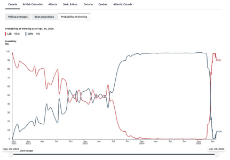
>>388589
TDS is a very strong political tool. One which the current rulers jumped on to reinforce. They're blaming the economy on the tariffs, for example.
TDS is a very strong political tool. One which the current rulers jumped on to reinforce. They're blaming the economy on the tariffs, for example.
1745903546_2.jpg (110.9 KB, 1600x900, canada-ballots-voting-1600x900.jpg)
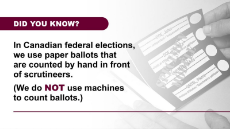
Don't get me wrong I'm not sympathetic of the leaves, but their electoral system is almost cheating-proof.
>>388588
>libcon supporters working together to make a grand cum chalice, but fight dearly for who gets to be the side that Canadians are forced to drink from
pottery
>libcon supporters working together to make a grand cum chalice, but fight dearly for who gets to be the side that Canadians are forced to drink from
pottery
>>388615
Conservatives in Leafland are as sharp as a spoon and as intelligent as the lifeless dirt under the tundra ice.
Oh well, guess they want to suffer more lol.
Conservatives in Leafland are as sharp as a spoon and as intelligent as the lifeless dirt under the tundra ice.
Oh well, guess they want to suffer more lol.
Yep, I've seen the charts.
Conservatives were winning.
Until this fathead opened is big mouth again.
Sorry, Canadabros.
Conservatives were winning.
Until this fathead opened is big mouth again.
Sorry, Canadabros.
>>388661
>>388588
No. Trump did not lose this election for the Conservatives. The Liberals won it with a few smart choices and the Conservatives lost it by failing to have an attractive policy platform.
Look more closely at the graph. Trump started his “Governor Trudeau” and “51st State” banter back in December of last year and there was no change. We see a drop in the Conservatives in February, which presumably correlates with the tariffs. The drop is statistically significant and noticeable, but it’s maybe a third of the total, if even that. The collapse in the Conservatives comes in March. What happened then? Mark Carney replaced Trudeau. That is when the Conservatives collapsed. It’s a pretty close mirror of what happened in the United States last year with Biden and Kamala. Biden was losing in the polls in March ups with Trump by up to 10 points. Then Biden was replaced with Kamala. And she would poll two points ahead of Trump, or even with him, all the way up until Election Day.
Carney played a better campaign than Kamala. Kamala never decided whether she wanted to carry on the Biden Administration or separate herself from it. Carney distanced himself from Trudeau and undercut Poilievre's entire campaign by setting the Carbon Tax to zero. For all of his complete lack of charisma, Carney was effective.
Pierre Poilievre ran his campaign on two planks. He was not Justin Trudeau and eliminating the Carbon Tax. Also a bunch of claims about making Canada better for business, but no one who isn't a Corporate executive of a Canadian company actually cares much about that, and most of those people were going to vote Liberal or NDP regardless. Carney immediately undercut all of that just by not being Trudeau, and also stole a large number of votes from Jagmeet Singh given that he was less tainted by his association. Then he set the Carbon Tax to 0. All Poilievre could do is stammer that the Carbon Tax technically still existed and they were just going to bring it back anyways. All of that was true but the fact remains that his entire policy platform was gone.
Poilievre's response to Trump's tariff's was awful. He waited until he read whatever Carney said in the newspaper, repeated it basically verbatim, and then added on a policy promise to eliminate internal barriers to trade. Even the way he'd phrase his statement about trade was almost identical to how Carney would do it. He'd start off with a false bravado saying something like "Canada is a proud country that will never be a 51st State!" that willfully misinterprets Trump's banter. Then he'd say "We'll respond with equivalent tariffs" which everyone, including both Carney and Poilievre, knew was a bad idea. One of the two promised to pool all of the money raised from tariffs into a fund for relief for the tariffs, but I honestly can't remember which one. That's how identical the two candidates were. Then they'd say "okay yeah we'll try to negotiate" which, no shit. Then they'd say that they would look for alternative trading partners (good luck finding an export market), and only after that does Poilievre differ from Carney by tacking on the promise to remove internal barriers.
Yes, eliminating the internal barriers to trade is a good idea. But it is a policy that doesn't effect most people very directly, and it doesn't speak to the soul. And while it plays well in Alberta, most of the rest of Canada doesn't care to eliminate these barriers. That's why they have them.
Poilievre was "stupidly no friend" of Trump and would make anti-American remarks in his speeches. Yes yes yes, the Canadian national identity is insecure and is based in no small part on the constant need to prove that Canadians are not Americans. But honestly, I do not believe that the vast majority of potential Conservative voters are that stupid, that insecure in their national identity, or that Trump deranged.
I have a newsflash for Pierre Poilievre and every single other Canadian politician who would beat their chest and say "we will never be a 51st state!": No one wants your country. If Canada were a state, it would be the poorest on average in the entire United States, worse than Alabama and either only barely beating Mississippi, or worse than Mississippi. We all know that it would be impossible to take in 30 million people without giving them voting rights, and we all know that letting Canadians vote in American elections would ensure a permanent Democrat majority. There is not a single Trump voter who wants that. Canada is a poorer, shittier version of California. Americans don't even want California in the Union, and certainly not another one.
Trump doesn't want 30 million Democrat voters. He doesn't want Quebecois terrorists, or Sikh terrorists, or BC's horrendous drug problem, or a failing economy, or Justin Bieber. Trump has actually made it clear what he wants through his various television appearances. He wants that stupid milk tariff abolished, he wants American banks to be allowed to do business in Canada, he wants more RCMP on the border, he wants the Canadian military to purchase more American made Lockheed Martin fighter jets, and he wants the BC government to stop being complicit in fentanyl trafficking. Trump already controls a failing nation with plenty of problems; he doesn't need a second. The 51st State remark is entirely because Trudeau took offense to it when he tweeted about it last year, and because people continue to be offended by it. It makes Canadians squirm and that is funny to Americans.
Canadians do not actually need to be told this, or at least, those Canadians who didn't just lose the election for their own riding. They already know all of this. A guest invited onto the Rasmusen podcast reported that polls she conducted in Canada found that Canadians were actually more likely to believe that the 51st State was a joke than did Americans. I do not believe that Canadians are as Trump deranged as advertised.
>>388588
No. Trump did not lose this election for the Conservatives. The Liberals won it with a few smart choices and the Conservatives lost it by failing to have an attractive policy platform.
Look more closely at the graph. Trump started his “Governor Trudeau” and “51st State” banter back in December of last year and there was no change. We see a drop in the Conservatives in February, which presumably correlates with the tariffs. The drop is statistically significant and noticeable, but it’s maybe a third of the total, if even that. The collapse in the Conservatives comes in March. What happened then? Mark Carney replaced Trudeau. That is when the Conservatives collapsed. It’s a pretty close mirror of what happened in the United States last year with Biden and Kamala. Biden was losing in the polls in March ups with Trump by up to 10 points. Then Biden was replaced with Kamala. And she would poll two points ahead of Trump, or even with him, all the way up until Election Day.
Carney played a better campaign than Kamala. Kamala never decided whether she wanted to carry on the Biden Administration or separate herself from it. Carney distanced himself from Trudeau and undercut Poilievre's entire campaign by setting the Carbon Tax to zero. For all of his complete lack of charisma, Carney was effective.
Pierre Poilievre ran his campaign on two planks. He was not Justin Trudeau and eliminating the Carbon Tax. Also a bunch of claims about making Canada better for business, but no one who isn't a Corporate executive of a Canadian company actually cares much about that, and most of those people were going to vote Liberal or NDP regardless. Carney immediately undercut all of that just by not being Trudeau, and also stole a large number of votes from Jagmeet Singh given that he was less tainted by his association. Then he set the Carbon Tax to 0. All Poilievre could do is stammer that the Carbon Tax technically still existed and they were just going to bring it back anyways. All of that was true but the fact remains that his entire policy platform was gone.
Poilievre's response to Trump's tariff's was awful. He waited until he read whatever Carney said in the newspaper, repeated it basically verbatim, and then added on a policy promise to eliminate internal barriers to trade. Even the way he'd phrase his statement about trade was almost identical to how Carney would do it. He'd start off with a false bravado saying something like "Canada is a proud country that will never be a 51st State!" that willfully misinterprets Trump's banter. Then he'd say "We'll respond with equivalent tariffs" which everyone, including both Carney and Poilievre, knew was a bad idea. One of the two promised to pool all of the money raised from tariffs into a fund for relief for the tariffs, but I honestly can't remember which one. That's how identical the two candidates were. Then they'd say "okay yeah we'll try to negotiate" which, no shit. Then they'd say that they would look for alternative trading partners (good luck finding an export market), and only after that does Poilievre differ from Carney by tacking on the promise to remove internal barriers.
Yes, eliminating the internal barriers to trade is a good idea. But it is a policy that doesn't effect most people very directly, and it doesn't speak to the soul. And while it plays well in Alberta, most of the rest of Canada doesn't care to eliminate these barriers. That's why they have them.
Poilievre was "stupidly no friend" of Trump and would make anti-American remarks in his speeches. Yes yes yes, the Canadian national identity is insecure and is based in no small part on the constant need to prove that Canadians are not Americans. But honestly, I do not believe that the vast majority of potential Conservative voters are that stupid, that insecure in their national identity, or that Trump deranged.
I have a newsflash for Pierre Poilievre and every single other Canadian politician who would beat their chest and say "we will never be a 51st state!": No one wants your country. If Canada were a state, it would be the poorest on average in the entire United States, worse than Alabama and either only barely beating Mississippi, or worse than Mississippi. We all know that it would be impossible to take in 30 million people without giving them voting rights, and we all know that letting Canadians vote in American elections would ensure a permanent Democrat majority. There is not a single Trump voter who wants that. Canada is a poorer, shittier version of California. Americans don't even want California in the Union, and certainly not another one.
Trump doesn't want 30 million Democrat voters. He doesn't want Quebecois terrorists, or Sikh terrorists, or BC's horrendous drug problem, or a failing economy, or Justin Bieber. Trump has actually made it clear what he wants through his various television appearances. He wants that stupid milk tariff abolished, he wants American banks to be allowed to do business in Canada, he wants more RCMP on the border, he wants the Canadian military to purchase more American made Lockheed Martin fighter jets, and he wants the BC government to stop being complicit in fentanyl trafficking. Trump already controls a failing nation with plenty of problems; he doesn't need a second. The 51st State remark is entirely because Trudeau took offense to it when he tweeted about it last year, and because people continue to be offended by it. It makes Canadians squirm and that is funny to Americans.
Canadians do not actually need to be told this, or at least, those Canadians who didn't just lose the election for their own riding. They already know all of this. A guest invited onto the Rasmusen podcast reported that polls she conducted in Canada found that Canadians were actually more likely to believe that the 51st State was a joke than did Americans. I do not believe that Canadians are as Trump deranged as advertised.
>>388687
The moment that Poilievre guy got felted by the bantz it was over. It conveyed to everyone that he and his party are no different from the other side, so no one bothered to change their vote. Hell, many leaf conservatives probably voted lib because the guy was basically advertising for the liberals every time he seethed.
What a fucking dumbass lol.
The moment that Poilievre guy got felted by the bantz it was over. It conveyed to everyone that he and his party are no different from the other side, so no one bothered to change their vote. Hell, many leaf conservatives probably voted lib because the guy was basically advertising for the liberals every time he seethed.
What a fucking dumbass lol.
>>388687
Let's take a closer look at Poilievre.
Consider that "apple" interview that Poilievre did that went viral, where a reporter said "people think of you as a populist" and Poilievre kicked it back on the reporter, asking him who said that. The contempt that Poilievre has for that reporter, and reporters in general, was good, to be sure, but ask yourself why Poilievre did not just say that he was a Populist? The reason is simple: he isn't one. He is the opposite of a populist.
A good enough measure of where a politician's true ideological passion lies is to just let them talk and see what they talk about. Consider Donald Trump. Ask him a question about nearly any topic, and if he speaks for a long enough period of time, he will invariably (after mentioning the seven swing states, what a terrible president Biden was, and how 2020 was rigged) will talk about Trade. 10 years ago, the same was true. He even talks about Japan beating the US in trade in Art of the Deal, and that was written back in the 1980s. Trump has memorized the US trade balance with every nation and every single tiny barrier to trade. India tariffs motorcycles 100%, Canada tariffs milk 135%, American cars aren't sold in Germany, but Australia is okay because they buy Boeings. He brings it up even when an irrelevant question is asked. He's like the Captain Ahab of the US trade deficit.
Does Poilievre behave similarly? Well, yes. He does. In almost every conversation, in almost every interview and almost every statement, Poilievre returns to the same set of issues. Poilievre is concerned with the difficulty of doing business in Canada, or to put it another way, he is obsessed with the policies of Economic Liberalism. Every speech, he talks about Canada losing out to the United States in business and economic competitiveness, and the general drain of investment and talent from Canada over the past 10 years of Liberal government.
Now, please don't misunderstand me. Poilievre is right about all of this. Canada has problems with how its economy is regulated and managed and adopting more economically liberal policies is probably a good start towards fixing these problems. Probably. But this isn't the 1980s anymore. Thatcher and Reagan are both dead. While these policies may indirectly affect average Canadians, that effect is very much indirect. They do, however, seem to directly effect business owners and wealthy donors. And in modern times where there is a strong distrust of government, and a belief that government does not work for the people, but for the wealthy, that is not a good look to have. These kinds of policies are just simply not as attractive today as they were 40 years ago.
The biggest issue in all of the West, and especially Canada, is immigration. To be sure, Canada has other massive problems, such as insanely high housing prices, excessively long waiting times for health care, crime, deterioration of the cities, stagnating or declining wages, and unemployment, but all of these are caused overwhelmingly by immigration and the resulting massive increase to the total population in a short time frame. A majority of Canada's problems are caused by immigration or overpopulation. Reducing immigration is the most obvious step towards solving virtually any problem in Canada.
So what did Poilievre say or promise to do about immigration? Astonishingly little. Deporting a few criminals but no mass deportations; a marginal decrease in the number of new immigrants coming in every year, but nothing significant enough to prevent the situation from becoming worse.
He would say almost nothing on the subject. Take the interview he did with Jordan Peterson, which lasted one hour and forty minutes. I immediately jumped to the chapter names on the video to see where Poilievre talks about immigration. It was the last minute and thirty seconds. Peterson asked Poilievre what should be done about immigration, and all Poilievre had to say was "we should return to the old system." I'm sorry Poilievre, but that isn't enough. And even if it were, it's obvious from this interview and from other speeches and interviews that immigration isn't an issue he cares much about. Certainly not enough to expand precious political capital to try to do anything about. Why would he be passionate about reducing immigration? Immigration lowers wages, increasing returns on investment for business owners, which is what he really wants. Reducing immigration could raise wages, which could reduce profits for business, and God forbid Pierre reduce profits for Canadian businesses. It's clear that Poilievre would scarcely reduce immigration at all if he were Prime Minister.
Even on stupid social issues like genders the two candidates were identical. Poilievre said "I am aware of only two genders" when asked how many genders there are, and Carney's later answer was "there are two sexes."
So what were Poilievre's final policy positions? Well, he wasn't Trudeau, he promised to eliminate the carbon tax, he would start an economic war against the United States (which even he knew would end terribly), and he would very marginally reduce immigration. But Canada already has a Prime Minister who has already done all of those things. His name is Mark Carney. No need to vote for a Corporatist candidate.
Poilievre did have some degree of charisma, he did have a good point on Carney being another globalist banker who helped exsanguinate Canada in the corporate world, and he was decent on crime as an issue. But it wasn't enough to make up for a lack of distinct policies.
Who do Canadians vote for if they wanted a proud populist who would dramatically reduce immigration, or maybe just remove that stupid milk tariff so Donald Trump can shut the hell up and back off of the 51st State stuff? No one. No such candidate exists in Canada.
But then again I'm not even Canadian. So what do I know?
>>388703
This.
Let's take a closer look at Poilievre.
Consider that "apple" interview that Poilievre did that went viral, where a reporter said "people think of you as a populist" and Poilievre kicked it back on the reporter, asking him who said that. The contempt that Poilievre has for that reporter, and reporters in general, was good, to be sure, but ask yourself why Poilievre did not just say that he was a Populist? The reason is simple: he isn't one. He is the opposite of a populist.
A good enough measure of where a politician's true ideological passion lies is to just let them talk and see what they talk about. Consider Donald Trump. Ask him a question about nearly any topic, and if he speaks for a long enough period of time, he will invariably (after mentioning the seven swing states, what a terrible president Biden was, and how 2020 was rigged) will talk about Trade. 10 years ago, the same was true. He even talks about Japan beating the US in trade in Art of the Deal, and that was written back in the 1980s. Trump has memorized the US trade balance with every nation and every single tiny barrier to trade. India tariffs motorcycles 100%, Canada tariffs milk 135%, American cars aren't sold in Germany, but Australia is okay because they buy Boeings. He brings it up even when an irrelevant question is asked. He's like the Captain Ahab of the US trade deficit.
Does Poilievre behave similarly? Well, yes. He does. In almost every conversation, in almost every interview and almost every statement, Poilievre returns to the same set of issues. Poilievre is concerned with the difficulty of doing business in Canada, or to put it another way, he is obsessed with the policies of Economic Liberalism. Every speech, he talks about Canada losing out to the United States in business and economic competitiveness, and the general drain of investment and talent from Canada over the past 10 years of Liberal government.
Now, please don't misunderstand me. Poilievre is right about all of this. Canada has problems with how its economy is regulated and managed and adopting more economically liberal policies is probably a good start towards fixing these problems. Probably. But this isn't the 1980s anymore. Thatcher and Reagan are both dead. While these policies may indirectly affect average Canadians, that effect is very much indirect. They do, however, seem to directly effect business owners and wealthy donors. And in modern times where there is a strong distrust of government, and a belief that government does not work for the people, but for the wealthy, that is not a good look to have. These kinds of policies are just simply not as attractive today as they were 40 years ago.
The biggest issue in all of the West, and especially Canada, is immigration. To be sure, Canada has other massive problems, such as insanely high housing prices, excessively long waiting times for health care, crime, deterioration of the cities, stagnating or declining wages, and unemployment, but all of these are caused overwhelmingly by immigration and the resulting massive increase to the total population in a short time frame. A majority of Canada's problems are caused by immigration or overpopulation. Reducing immigration is the most obvious step towards solving virtually any problem in Canada.
So what did Poilievre say or promise to do about immigration? Astonishingly little. Deporting a few criminals but no mass deportations; a marginal decrease in the number of new immigrants coming in every year, but nothing significant enough to prevent the situation from becoming worse.
He would say almost nothing on the subject. Take the interview he did with Jordan Peterson, which lasted one hour and forty minutes. I immediately jumped to the chapter names on the video to see where Poilievre talks about immigration. It was the last minute and thirty seconds. Peterson asked Poilievre what should be done about immigration, and all Poilievre had to say was "we should return to the old system." I'm sorry Poilievre, but that isn't enough. And even if it were, it's obvious from this interview and from other speeches and interviews that immigration isn't an issue he cares much about. Certainly not enough to expand precious political capital to try to do anything about. Why would he be passionate about reducing immigration? Immigration lowers wages, increasing returns on investment for business owners, which is what he really wants. Reducing immigration could raise wages, which could reduce profits for business, and God forbid Pierre reduce profits for Canadian businesses. It's clear that Poilievre would scarcely reduce immigration at all if he were Prime Minister.
Even on stupid social issues like genders the two candidates were identical. Poilievre said "I am aware of only two genders" when asked how many genders there are, and Carney's later answer was "there are two sexes."
So what were Poilievre's final policy positions? Well, he wasn't Trudeau, he promised to eliminate the carbon tax, he would start an economic war against the United States (which even he knew would end terribly), and he would very marginally reduce immigration. But Canada already has a Prime Minister who has already done all of those things. His name is Mark Carney. No need to vote for a Corporatist candidate.
Poilievre did have some degree of charisma, he did have a good point on Carney being another globalist banker who helped exsanguinate Canada in the corporate world, and he was decent on crime as an issue. But it wasn't enough to make up for a lack of distinct policies.
Who do Canadians vote for if they wanted a proud populist who would dramatically reduce immigration, or maybe just remove that stupid milk tariff so Donald Trump can shut the hell up and back off of the 51st State stuff? No one. No such candidate exists in Canada.
But then again I'm not even Canadian. So what do I know?
>>388703
This.
>>388582
If I'm not mistaken, Canadian choose the guy who will ensure Canadians will cease to exist as People.
If I'm not mistaken, Canadian choose the guy who will ensure Canadians will cease to exist as People.
>multiracial enrichment
A reminder that leaves literally voted for it and got impaled in their own tolerance.
A reminder that leaves literally voted for it and got impaled in their own tolerance.
>>391186
>A reminder that leaves literally voted for it and got impaled in their own tolerance.
Another occurrence:
Peel Region, Ontario 9 arrested in historic drug seizure of 479 Kilograms of cocaine and other charges – tied to the commercial trucking industry. Not one of them is a Canadian.
>A reminder that leaves literally voted for it and got impaled in their own tolerance.
Another occurrence:
Peel Region, Ontario 9 arrested in historic drug seizure of 479 Kilograms of cocaine and other charges – tied to the commercial trucking industry. Not one of them is a Canadian.
>>391186
>leaves literally voted for it
Immigrants voted for it, just as they were imported specifically to do.
>leaves literally voted for it
Immigrants voted for it, just as they were imported specifically to do.
Rebel News here with a very nice 5-minute segment.
It ties together multiple major stressors, instead of only being one small story about one small part of the various monsters ripping at the body of the civilization.
It might be suitable for showing to others who haven't lined up these ducks in a row all at once yet. Or if they haven't done so in a while.
Wider layers of economic-interest coincidences that include an expanded knowledge base exist, sure. But I like the articulation of problems as a group. It makes them seem more manageable somehow.
[YouTube] Liberals prioritize foreign workers over youth in economic betrayal![]()
It ties together multiple major stressors, instead of only being one small story about one small part of the various monsters ripping at the body of the civilization.
It might be suitable for showing to others who haven't lined up these ducks in a row all at once yet. Or if they haven't done so in a while.
Wider layers of economic-interest coincidences that include an expanded knowledge base exist, sure. But I like the articulation of problems as a group. It makes them seem more manageable somehow.
[YouTube] Liberals prioritize foreign workers over youth in economic betrayal
4 replies and 1 files omitted.
[View All] [Last 50 Posts] [Last 200 Posts]Post pagination: [Prev] [1-100] [101-104] [Next]
104 replies | 76 files | 59 UUIDs | Page 3
[Add to Thread Watcher]
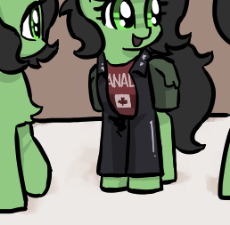





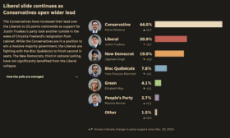
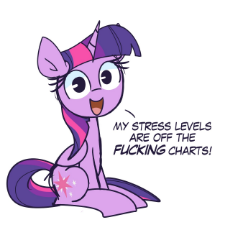

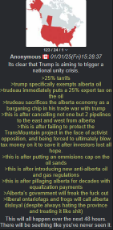
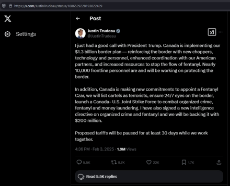






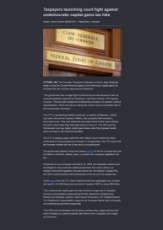
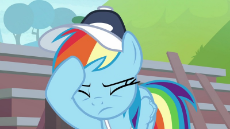
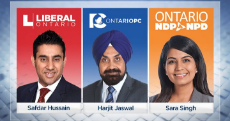
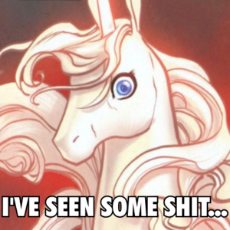

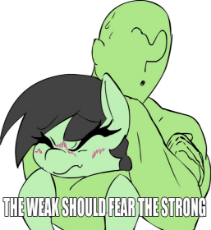
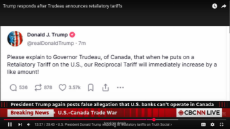
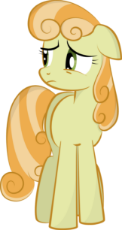





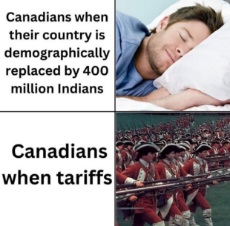

![20250425 Are You STUPID? Liberals Promise Housing AGAIN - After a Decade of Broken Vows & Flood of Immigrants - Viva Frei - WNR7masZXj4 [480p].jpg](/images/thumb/CBF98297A30BF22996CEA256EE5E78C0-129560.png)

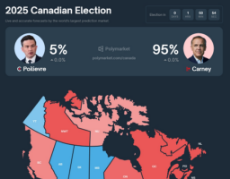


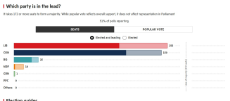
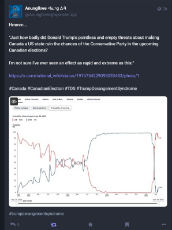

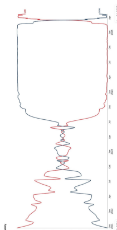


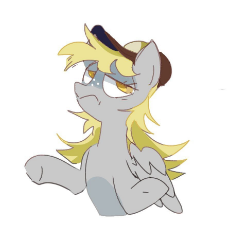
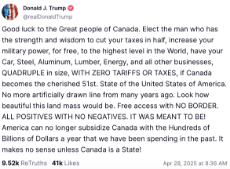
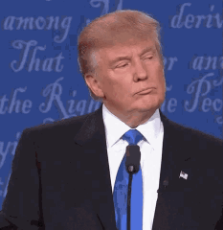



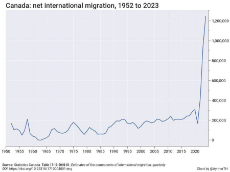
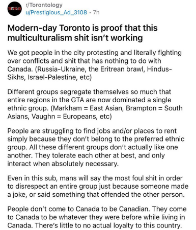

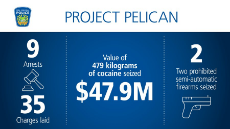
 Ex: Type :littlepip: to add Littlepip
Ex: Type :littlepip: to add Littlepip  Ex: Type :eqg-rarity: to add EqG Rarity
Ex: Type :eqg-rarity: to add EqG Rarity 